Choose your language

Getting Around

Entry to Cuba: Visas & Travel Requirements
Traffic by the Capitol building, Havana
Photo: Shutterstock
Stay updated with the latest travel information for your trip to Cuba!
Embarking on a journey to Cuba? Here's your guide to the latest visa requirements and travel protocols. Whether you're coming from North America, Europe, or elsewhere, we've got you covered.
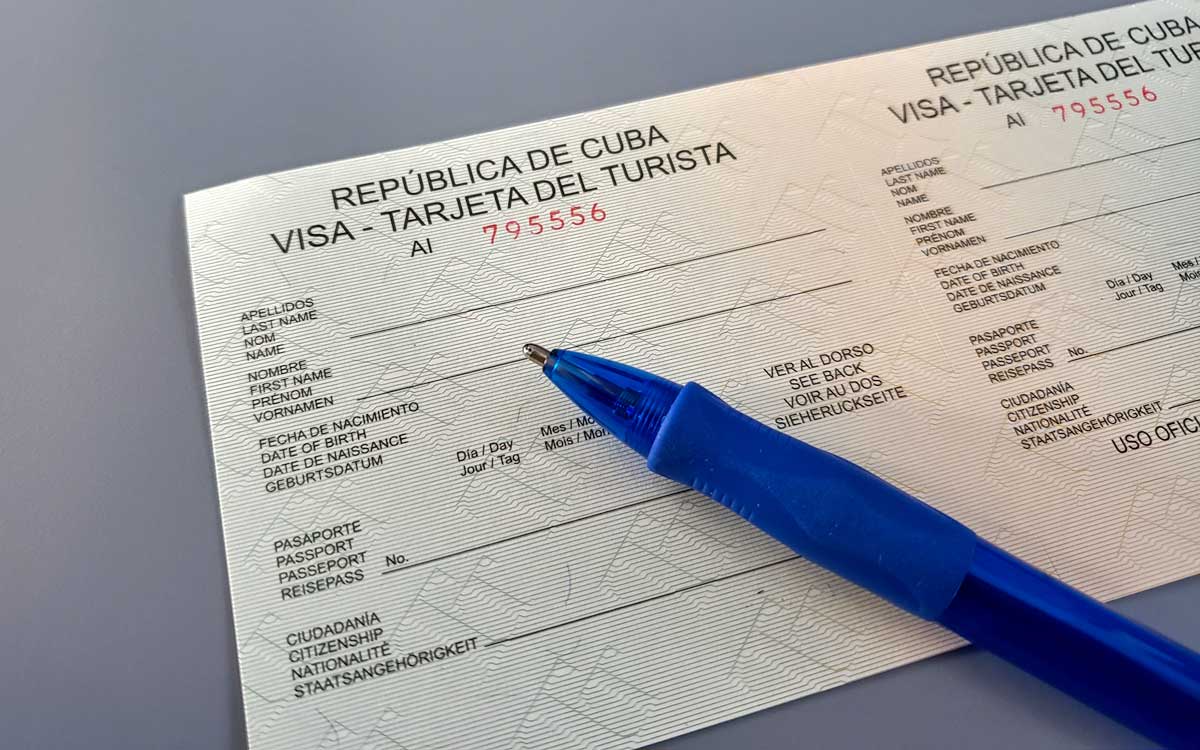
Cuba visa application form
What are the visa and entry requirements to Cuba?
US Citizens
Planning a trip to Cuba as a US citizen? There are special regulations you need to be aware of. While tourism trips to Cuba aren't yet authorized, general licenses have been issued for a variety of travel categories. If you meet the requirements of the general license under which they plan to travel, you won't need to apply for another permit from the OFAC (Office of Foreign Assets Control of the Treasury Department) for your trip.
However, it's important to note that the US Embassy in Havana and the State Department in Washington D.C do not process visa applications for trips to Cuba. If you need to apply for a visa or have any questions regarding your specific case, you should contact the Cuban Embassy in Washington D.C.
And remember, certain activities may not be allowed, so it's best to check with the US embassy for information on organizations or businesses in Cuba that U.S. citizens are not allowed to engage with due to economic sanctions or other legal restrictions.
Canadian Citizens
As a Canadian citizen, you'll need a valid passport for the duration of your stay in Cuba. Make sure your passport's expiration date isn't near to avoid any travel hiccups. Depending on your trip's purpose, you may need different types of visas. If you're traveling as a tourist, you'll need a tourist visa, which can be obtained from tour operators, airlines, or a Cuban government office in Canada.
European Citizens
If you're a European citizen planning to travel to Cuba, remember that visa protocols can vary depending on your country of residence. For most European citizens, a valid passport is required during your stay in Cuba. Some countries, like Spain, require the passport to be valid for at least 6 months.
It's also important to note that if you plan to travel to the United States after visiting Cuba, you'll need a visa. This is because the electronic system for travel authorization (ESTA) is not sufficient for those who have traveled to Cuba before. This visa must be obtained at the Consulate General of the US Embassy in your place of residence.
Given the varying requirements, it's a good idea to contact your tour operator or travel agency to understand the specific visa requirements for your travel.
Latin American Citizens
For Latin American citizens, a valid passport is required during your stay in Cuba. You'll also need to obtain a tourist visa or tourist card for your trip. This can be processed at tourism agencies or airlines, which usually handle its issuance.
The visa is generally issued for about 90 days and can then be extended. It's also important to note that you should have travel insurance with medical coverage.
Visa Costs: What to Expect
Visa costs can vary depending on where it's issued. Generally, prices range between $20 and $80. If you apply online, additional charges may apply, and prices can range from $110 to $150.
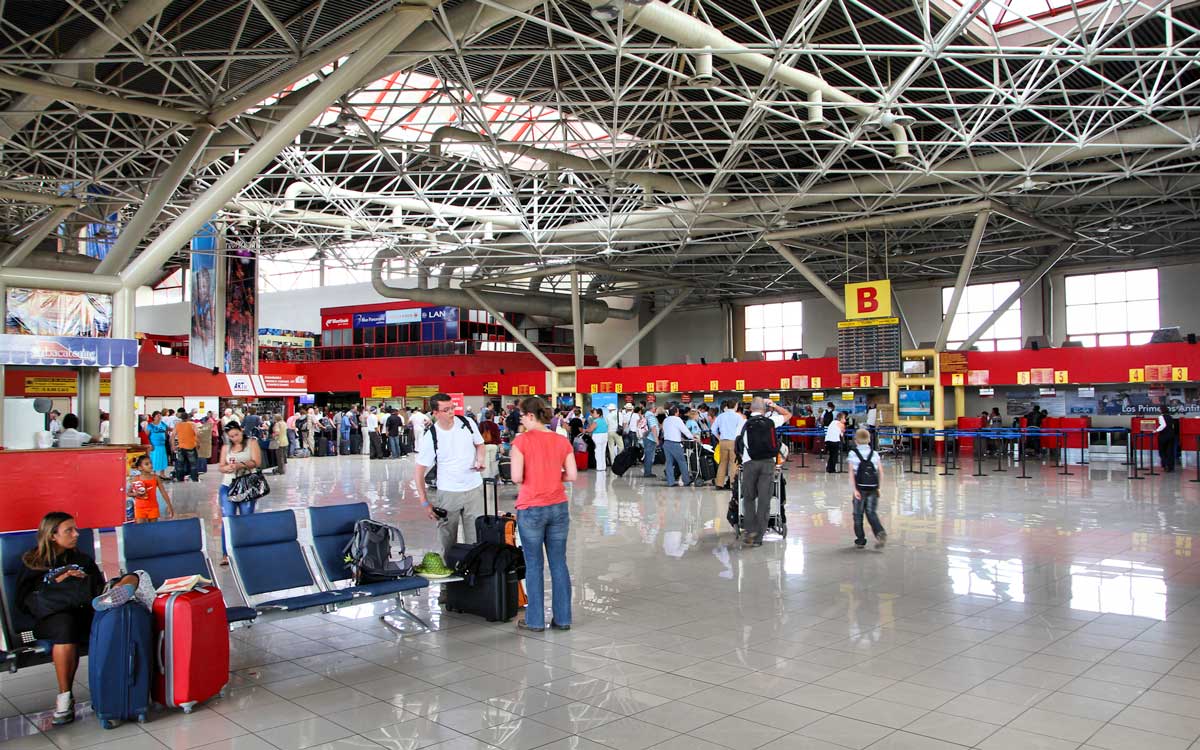
Jose Marti International Airport in Havana
What items can I bring to Cuba?
When packing for your trip to Cuba, you can bring personal effects, including personal phones and computers, free of charge. The range of objects you can bring to Cuba is quite wide, from musical instruments to televisions. However, some items may be subject to charges depending on Customs regulations.
Some items can be brought into the country without having to pay any import taxes. These include used personal objects, art and literature books, music discs, manufactured pharmaceutical products, and wheelchairs, among others.
However, it's crucial to be aware of prohibited items. While some of these, like explosives, drugs and narcotics, and blood derivatives, may seem obvious, others might surprise you. For instance, literature, articles or objects that are considered obscene, pornographic or that attack the general interests of the nation are also prohibited.
If you attempt to bring into the country articles that are not allowed for import, the General Customs of Cuba can exercise administrative sanctions. This means that Customs can seize those imported articles whose entry is prohibited in Cuba, as well as products that have been entered with a fraudulent declaration.
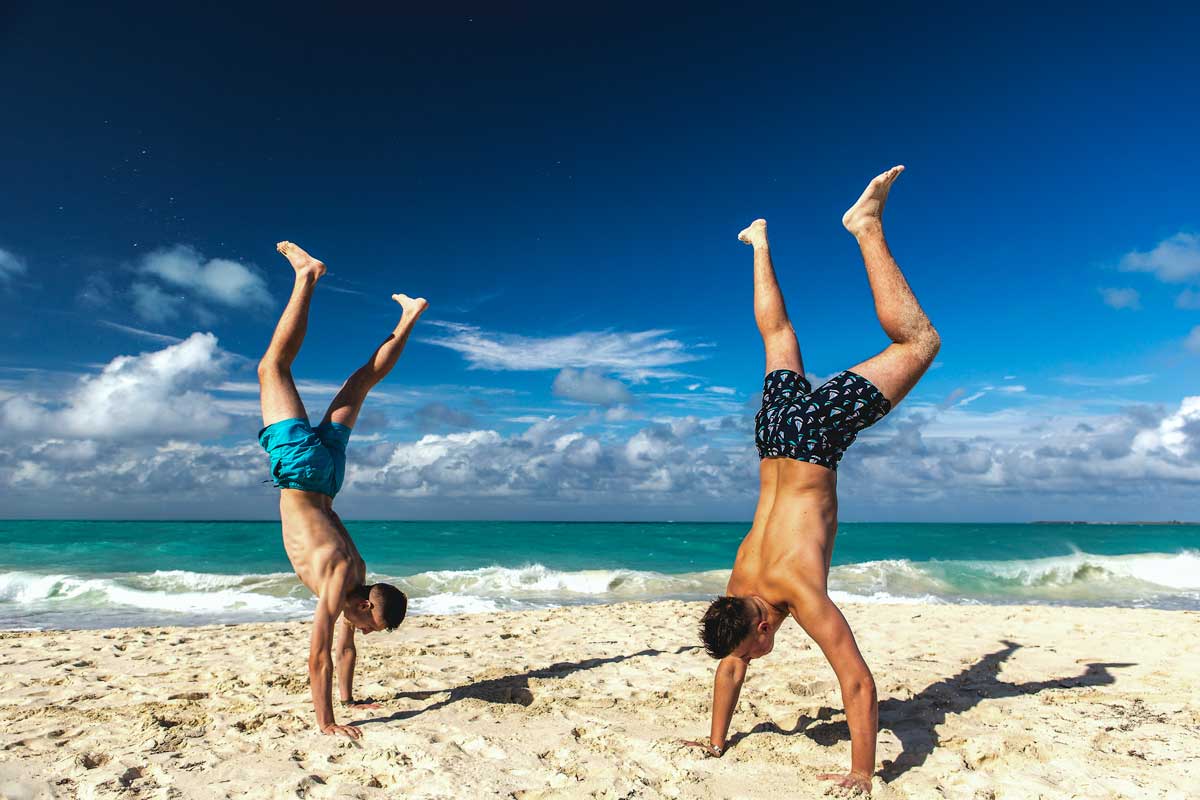
Travelers on a beach in Varadero
Photo: Unsplash
Health and Vaccinations
Before you embark on your journey to Cuba, it's important to ensure you're up to date with routine vaccines. This includes vaccines against chickenpox, tetanus, influenza, rubella, and polio. In the current climate, being vaccinated against COVID-19 is also essential.
Additionally, consider getting vaccinated against Hepatitis A and Hepatitis B. If your trip to Cuba includes exploring nature or venturing into rural areas away from the city center for activities such as outdoor camping, the rabies vaccine is also recommended. Travelers are also advised to consider the typhus vaccine.
Can I bring my pet to Cuba?
If you're planning to bring your pet to Cuba, there are a few requirements you need to meet. Make sure your pet has the necessary vaccines and an official health certificate. You'll also need to request a travel certificate for your pet from the Consulate or Embassy of Cuba in your country.
Written by Teresita Padrón .
Published July 2023.
Explore Top Destinations in Cuba
Fábrica de arte cubano: a unique experience for art lovers.
Havana houses one of Time Magazine’s Best 100 experiences: the
LGBTQ+ Nightlife: Six Gay-Friendly Venues to Visit in Havana
Havana's LGBTQ+ scene is livelier than ever! Check out these
When Is the Best Time to Visit Cuba?
Planning a visit to Cuba? The island offers sunny skies
The Top Five Best Bakeries in Havana
Sweeten-up your life with some of the most exquisite pastries
Six Cool Things to Do in Trinidad, Cuba
From colonial architecture to vibrant rumba beats, uncover the top
Where to Drink in Havana: Our Essential List of the Best Bars
Explore our essential list of the best bars in Cuba,
Cayo Coco: The Ideal Cuban Paradise
Of all the Cuban islands, Cayo Coco has some of
Visit the Museo de la Revolución, and Relive the Fight for Cuba
Havana’s Museo de la Revolución offers a thorough look at
Five Cuban Clothing Brands to Shop for in Havana
Take a look at the emerging Cuban dress wear brands
Top Four Jazz Clubs in Havana
Things to DoTop Four Jazz Clubs in Havana La Zorra
Subscribe to our newsletter
Get more travel inspiration, tips and exclusive offers sent straight to your inbox
I would like to get Visit Cuba newsletters in my inbox
Paradise for Your Inbox

Cookies on GOV.UK
We use some essential cookies to make this website work.
We’d like to set additional cookies to understand how you use GOV.UK, remember your settings and improve government services.
We also use cookies set by other sites to help us deliver content from their services.
You have accepted additional cookies. You can change your cookie settings at any time.
You have rejected additional cookies. You can change your cookie settings at any time.
- Passports, travel and living abroad
- Travel abroad
- Foreign travel advice
Entry requirements
This advice reflects the UK government’s understanding of current rules for people travelling on a full ‘British citizen’ passport from the UK, for the most common types of travel.
The authorities in Cuba set and enforce entry rules. If you’re not sure how these requirements apply to you, contact the Cuban Embassy in the UK .
COVID-19 rules
There are no COVID-19 testing or vaccination requirements for travellers entering Cuba.
Passport validity requirements
To enter Cuba, your passport must have an ‘expiry date’ at least 6 months after the date you arrive and 3 months after your planned departure date.
Check with your travel provider that your passport and other travel documents meet requirements. Renew your passport if you need to.
You will be denied entry if you do not have a valid travel document or try to use a passport that has been reported lost or stolen.
Visa requirements
If you’re visiting Cuba as a tourist, you need to get a tourist card before you travel. Apply through the Cuban Embassy in the UK or check with your travel agent or tour operator.
You must also show proof of onward or return travel. See Cuba’s consular services information for details.
For more information and advice about other types of visas, contact the Cuban Embassy in the UK .
Overstaying your visa
The authorities take any breach of immigration rules seriously. You could be detained if you overstay your visa.
Checks at border control
You must complete the arrival form on the D’Viajeros traveller information portal at least 72 hours before you arrive. You’ll get a QR code to show to the authorities on arrival.
Travelling from the USA to Cuba
Under US law, you are not allowed to travel directly from the USA to Cuba for tourism.
There are 12 reasons or categories for which the USA authorities will approve direct travel from the USA to Cuba. For more information see the US Department of the Treasury website , the US State Department’s travel advice for Cuba and the Code of Federal Regulations .
Travelling from Cuba to the USA
You cannot travel from Cuba to the USA without a US visa.
Vaccine requirements
You must have a certificate to prove you’ve had a yellow fever vaccination if you’re coming from a country listed as a transmission risk .
For full details about medical entry requirements and recommended vaccinations, see TravelHealthPro’s Cuba guide .
Customs rules
There are strict rules about goods you can take into and out of Cuba . You must declare anything that may be prohibited or subject to tax or duty.
Art and antiques
Some art and antiques require an export permit from the Country Heritage Office (‘Bienes Culturales’). Ask the vendor if they have the required permit for the item you are buying. At the airport, you may need to show the receipt.
Photography equipment
You may need an import licence for photography equipment, as well as the appropriate journalism visa.
You are not allowed to bring drones into Cuba. They will be confiscated on arrival and not returned until your departure. The process for getting your drone back could be lengthy.
You cannot take meat products, milk, fresh fruit, vegetables, seeds or organic matter into Cuba, with some exceptions .
Electrical items and GPS on mobiles
Some electrical items with heavy power consumption may be confiscated on entry to Cuba.
Global Positioning Systems ( GPS ) are subject to import requirements. Mobile phones, tablets and laptops can be taken to Cuba, but you must turn off any inbuilt GPS .
Complete a customs form if items are confiscated on your arrival so you can collect them on your departure date.
Taking money into Cuba
The Cuban national peso (CUP – ‘moneda nacional’) is the official currency and cannot be exchanged outside of Cuba. Declare foreign currency you’re taking into Cuba if the value is more than 5,000 US dollars.
You must only exchange money at the Cadeca exchange houses. It is illegal to exchange money anywhere else. See Money .
Related content
Is this page useful.
- Yes this page is useful
- No this page is not useful
Help us improve GOV.UK
Don’t include personal or financial information like your National Insurance number or credit card details.
To help us improve GOV.UK, we’d like to know more about your visit today. We’ll send you a link to a feedback form. It will take only 2 minutes to fill in. Don’t worry we won’t send you spam or share your email address with anyone.
Update April 12, 2024
Information for u.s. citizens in the middle east.
- Travel Advisories |
- Contact Us |
- MyTravelGov |
Find U.S. Embassies & Consulates
Travel.state.gov, congressional liaison, special issuance agency, u.s. passports, international travel, intercountry adoption, international parental child abduction, records and authentications, popular links, travel advisories, mytravelgov, stay connected, legal resources, legal information, info for u.s. law enforcement, replace or certify documents.
Before You Go
Learn About Your Destination
While Abroad
Emergencies
Share this page:
Travel Advisory January 5, 2024
Cuba - level 2: exercise increased caution.
Reissued with updates to crime information.
Exercise increased caution in Cuba due to crime .
Country Summary: Petty crime is a threat for tourists in Cuba. Also, violent crime, including armed robbery and homicide, sometimes occurs in Cuba.
Travel outside of the Havana area for U.S. Embassy employees requires a special notification process which may affect the Embassy’s ability to provide emergency assistance to U.S. citizens in Cuba.
Read the country information page for additional information on travel to Cuba.
If you decide to travel to Cuba:
- Be aware of your surroundings.
- Do not physically resist any robbery attempt.
- Do not display signs of wealth, such as wearing expensive watches or jewelry.
- Enroll in the Smart Traveler Enrollment Program (STEP) to receive Alerts and make it easier to locate you in an emergency.
U.S. citizens should always exercise caution when traveling abroad:
- Follow the Department of State on Facebook and Twitter .
- Review the Country Security Report for Cuba.
- Prepare a contingency plan for emergency situations. Review the Traveler’s Checklist .
Embassy Messages
View Alerts and Messages Archive
Quick Facts
Must have six months validity at the time of entry.
Two pages are required for entry/exit stamps.
Yes. Travel to Cuba for tourist activities remains prohibited by statute. See 31 C.F.R 515.560 and OFAC's Frequently Asked Questions .
None. See CDC for recommendations.
U.S. credit and debit cards do not work in Cuba. You should bring U.S. dollars or Euros to Cuba and exchange them for Cuban Pesos (CUP) at authorized banks, CADECA offices, airports or hotels. Travelers should confirm alternative payment options before traveling, as policies concerning the use of U.S. dollars in Cuba are subject to change. The Cuban government requires that travelers declare cash amounts over the equivalent of 5,000 USD.
When departing Cuba, we advise U.S. travelers to spend or exchange CUP to a foreign currency well before reaching airport security checkpoints. Currency exchange houses in the departure area at airports are currently closed and Cuban pesos are not internationally convertible outside of Cuba.. International airlines flying to the United States include departure fees and taxes in the price of airline tickets. U.S. dollars are not accepted for payment of any additional products purchased at the airport. Under Cuban law, travelers may export up to the equivalent of 5,000 USD out of the country. Anyone wishing to depart Cuba with more than this amount of cash must demonstrate evidence that the currency was acquired legitimately from a Cuban bank.
Embassies and Consulates
U.S. Embassy Calzada between L and M Streets, Vedado, Havana, Cuba Telephone: + (53) (7) 839-4100 (Monday- Friday 0830-1630, except holidays) Emergency after-hours telephone: + (53) (7) 839-4100 and dial 1 to speak with the emergency operator Fax: + (53) (7) 839-4247 Website: https:cu.usembassy.gov
Email: [email protected] (for concerns with U.S. citizens)
Destination Description
Learn about the U.S. relationship to countries around the world.
Entry, Exit and Visa Requirements
Travel to Cuba from or transiting through the United States by persons under U.S. jurisdiction (defined as [BE1] U.S. citizens located anywhere, and anyone located in the United States regardless of citizenship and nationality) , is regulated by the Office of Foreign Assets Control (OFAC) of the U.S. Department of the Treasury. All travelers falling under U.S. jurisdiction must comply with these regulations. Individuals seeking to travel to Cuba are not required to obtain licenses from OFAC if their travel is covered under the 12 travel categories authorized by a general OFAC license. If travel is not covered by a general license, you must seek OFAC authorization in the form of a specific license . Travelers who fail to comply with regulations may face penalties and criminal prosecution. For travel-specific questions, please see 31 C.F.R. 515.560 and OFAC’s Frequently Asked Questions .
Visit the Embassy of Cuba website for the most current visa information.
Cuba requires visitors to have non-U.S. medical insurance, which is usually included in airline ticket prices on flights originating in the United States. If you do not have insurance, it can be purchased upon arrival to Cuba at an airport kiosk. Asistur Medical Insurance is the official company that airlines contract. Please confirm your coverage with your airline prior to arrival in Cuba and seek additional medical insurance if needed.
Cuba does not recognize the U.S. citizenship of Cuban-born U.S. citizens who maintain residency status in Cuba. The Cuban government requires Cuban dual nationals to enter and depart Cuba using Cuban passports. Cuban-born U.S. citizens who maintain their residency status in Cuba will be treated as Cuban citizens and may be subject to Cuban restrictions and legal obligations.
Some HIV/AIDS entry restrictions exist for visitors to and foreign residents of Cuba. Foreign students on scholarships are required to test for HIV/AIDS. Please verify this information with the Embassy of Cuba before you travel.
Information about dual nationality , the prevention of international child abduction , and customs regulations can be found on our websites.
Cuban Requirements for Authorized Travelers: Attempts to enter or exit Cuba illegally, or to aid the irregular exit of Cuban nationals or other persons, are prohibited. Entering Cuban territory, territorial waters, or airspace without prior authorization from the Cuban government may result in arrest. Immigration violators are subject to prison terms ranging from four to thirty years.
Temporary Sojourn License: Most aircraft and maritime vessels on temporary sojourn to Cuba are no longer eligible for an Aircraft, Vessels, and Spacecraft (AVS) License Exception. See 15 C.F.R. § 740.15. If you are planning to enter Cuba with a U.S. or foreign-registered aircraft or maritime vessel on temporary sojourn, you must meet the criteria set forth in 15 C.F.R. § 740.15. Please see the U.S. Department of Commerce’s Bureau of Industry and Security website for additional information.
In addition, a vessel of the United States, as defined in 33 C.F.R. §107.200, may not enter Cuban territorial waters without advance permission from the U.S. Coast Guard. The U.S. Coast Guard provides permission information at (305) 415-6920.
Safety and Security
The security environment in Cuba is relatively stable and characterized by a strong military and police presence. Demonstrations are infrequent but can draw violent responses from government forces. Even demonstrations intended to be peaceful can turn confrontational without warning. Avoid demonstrations and maintain security awareness at all times. Demonstration Alerts are posted on the Embassy’s website . Review the Cuba Travel Advisory .
The Cuban government has detained U.S. citizens suspected of engaging in activities perceived to undermine state security. The Cuban government may detain individuals for activities that would not be considered criminal or offensive in the United States.
Crime: With the recent influx of travelers, there has been an increase in the number of property crimes. Crimes of opportunity, such as pick pocketing, purse snatchings, and car break-ins, are on the rise. Exercise vigilance everywhere . Do not display large amounts of cash. Do not leave your valuables unattended. Carry money in your front pockets, hold your purse and cellular phone securely and be mindful of purses or bags when dining out.
- Do not leave a beverage unattended or accept beverages from persons unknown to you.
- Locations such as Habana Vieja, Playas del Este, Varadero, and other attractions tend to have a higher incidence of property crime than other parts of Cuba.
- Be wary of misdirection schemes where someone attempts to gain your attention while another comes from behind to steal your purse, wallet, or other valuable items.
- If confronted by criminals, do not resist, try to remain calm, clearly display your hands and do not make any sudden moves that could be interpreted as resistance.
- Carry a cell phone with Cuban cellular service for emergency communications and travel in groups if possible.
- Be aware of your surroundings, especially at night or when traveling in an unfamiliar area.
- While in your car, place valuables out of sight or in a locked trunk. When unattended, avoid leaving items in the car, especially on the seat or in plain view.
- Only use marked taxis.
- Carry a copy of your passport and secure the original.
- Beware of scam artists, who may speak English and appear friendly.
- When exchanging currency, use the state-run offices known as CADECAs or official banks.
International Financial Scams: See the Department of State and the FBI pages for information.
Victims of Crime: We strongly urge U.S. citizen victims of sexual assault to contact the U.S. Embassy for assistance. Report crimes to the local police by dialing 106 and contact the U.S. Embassy at +53 7839-4100. Remember that local authorities are responsible for investigating and prosecuting crimes.
See our webpage on help for U.S. victims of crime overseas .
We can:
- help you find medical care
- assist you in reporting a crime to the police
- contact relatives or friends with your written consent
- provide general information regarding the victim’s role during the local investigation and following its conclusion
- provide a list of local attorneys
- provide information on victim’s compensation programs in the U.S.
- provide an emergency loan for repatriation to the United States and/or limited medical support in cases of destitution
- help you find accommodation and arrange flights home
- replace a stolen or lost passport
Domestic Violence: U.S. citizen victims of domestic violence are strongly encouraged to contact the Embassy for assistance.
Tourism: The tourism industry is unevenly regulated, and safety inspections for equipment and facilities do not commonly occur. Hazardous areas/activities are not always identified with appropriate signage, and staff may not be trained or certified either by the host government or by recognized authorities in the field. In the event of an injury, even basic medical treatment is typically available only in/near major cities. First responders are generally unable to access areas outside of major cities and to provide urgent medical treatment. U.S. citizens should maintain health insurance in Cuba. If stays exceed 30 days, [CM1] U.S. citizens should purchase medical insurance when they process their visa extensions.
Local Laws & Special Circumstances
Criminal Penalties: You are subject to local laws. If you violate local laws, even unknowingly, you may be expelled, arrested, or imprisoned. Individuals establishing a business or practicing a profession that requires additional permits or licensing should seek information from the competent local authorities, prior to practicing or operating a business.
Furthermore, some laws are also prosecutable in the United States, regardless of local law. For examples, see our website on crimes against minors abroad and the Department of Justice website.
Arrest Notification: If you are arrested or detained, ask police or prison officials to notify the U.S. Embassy immediately. See our webpage for further information.
Cuban penalties for the following are particularly severe:
- Possession, use, or trafficking of illegal drugs.
- Suspicion of assisting Cubans to leave the country illegally.
- Drivers involved in accidents that result in injury or death, regardless of fault.
- Importing weapons or ammunition.
- Photographing military or police installations or personnel, or harbor, rail, or airport facilities.
- Crimes against minors.
The Government of Cuba does not recognize the U.S. citizenship of Cuban-born U.S. citizens who maintain residency in Cuba and may not allow U.S. consular access to Cuban-American prisoners.
Telecommunications: Many U.S. mobile service carriers provide roaming services in Cuba. Your U.S. mobile phone will work in Cuba if your mobile phone is capable of roaming in Cuba and your mobile service provider has an international roaming agreement with ETECSA, Cuba's state-owned telecommunications provider. Currently AT&T, Sprint, Verizon, and T-Mobile have roaming agreements with ETECSA. Wi-Fi is often slow and unreliable. Be sure to confirm your carrier’s coverage before traveling.
SIM cards with a data plan can be purchased at Havana-José Martí International Airport (HAV) and local ETESCA telecommunications offices. To ensure family and friends can reach you in Cuba, check with your mobile provider about roaming options and cost or purchase a Cuban SIM card. See the FCC Travel FAQs for more information.
Cuba-related Travel Transactions: Only persons whose travel falls into the 12 OFAC approved travel categories or who have received a specific license from OFAC are authorized by the U.S. Department of the Treasury to travel to, from, or within Cuba. Direct financial transactions with certain entities and sub-entities under the control of, or acting for or on behalf of, the Cuban military, intelligence, or security services are also generally prohibited. For more information see the Department of State’s Cuba Restricted List . Additionally, lodging, paying for lodging, or making reservations on behalf of others to lodge, at certain accommodations in Cuba are prohibited; for a full list of such accommodations, see the Cuba Prohibited Accommodations List . For more information about licenses, visit OFAC’s Cuba Sanctions website . Additionally, lodging, paying for lodging, or making reservations on behalf of others to lodge, at certain accommodations in Cuba are prohibited; for a full list of such accommodations, see the Cuba Prohibited Accommodations List . For more information about licenses, visit OFAC’s Cuba Sanctions website .
Licenses for Remittances: In June 2022, OFAC published updated Cuba-related regulations . The new regulations eliminated a cap on remittances to family members in Cuba, and authorized remittances to non-family recipients as well. Certain Prohibited Officials of the Government of Cuba , Prohibited Members of the Cuban Communist Party , and the close relatives of these two groups, are not eligible to receive remittances. For information on remittance authorizations, see OFAC’s Cuba Sanctions website .
What May Be Brought Back From Cuba: Importation of Cuban merchandise for commercial purposes is restricted, with very limited exceptions. Certain imports of goods produced by independent Cuban entrepreneurs are authorized, as set forth on the Department of State’s Section 515.582 List (see 31 C.F.R 515.582). There are no limits on the import or export of informational materials. For more information related to imports, including merchandise entering the United States for personal use as accompanied baggage, please see the CBP Public Notice .
Cuban law requires foreigners to obtain authorization to remove souvenir paintings and sculptures out of Cuba. Most authorized points of sale, such as galleries and art studios, should be familiar with this process and should provide the proper documentation at the time of purchase. You can also apply for an export permit via the Cuban Fund of Cultural Assets. Travelers without a valid export permit may have their items confiscated at the port of departure. The U.S. Embassy cannot assist in these cases. For more information, please contact the embassy of Cuba .
Travelers may purchase alcohol and tobacco products while in Cuba for personal consumption in Cuba, but may not enter the United States with alcohol and/or tobacco products acquired in Cuba. Persons subject to United States jurisdiction may purchase or acquire Cuban-origin merchandise for personal consumption, including alcohol and tobacco products, while in a third country, but may not import such products into the United States. For a complete description of what this general license authorizes and the restrictions that apply, see 31 CFR § 515.585(c) and (d).
Storm Season: Tropical storms and hurricanes between May and November can produce heavy winds and rain. See our page on disaster and crisis preparedness for more information.
Faith-Based Travelers: See the following webpages for details:
- Faith-Based Travel Information
- International Religious Freedom Report – see country reports
- Human Rights Report – see country reports
- Best Practices for Volunteering Abroad
LGBTI Travelers: There are no legal restrictions on same-sex sexual relations or the organization of LGBTI events in Cuba, and on September 26, 2022 Cubans passed the referendum legalizing same sex marriage.
See our LGBTI Travel Information page and section 6 of our Human Rights report for further details.
Travelers Who Require Accessibility Assistance . Individuals with mobility issues are likely to find accessibility difficult . Few facilities or services are available, and information is limited. Most roads and sidewalks are poorly maintained.
Students: See our Students Abroad page and FBI travel tips .
Women Travelers: See our travel tips for Women Travelers .
Currency Restrictions: Be advised that policies concerning the use and convertibility of U.S. dollars in Cuba are subject to change. Obtaining U.S. dollar cash is nearly impossible through official channels. The Cuban Central Bank prohibits certain U.S. dollar cash transactions, including conversion of U.S. dollars to Cuban pesos, the use of U.S. dollars for cash payments, including in government-run establishments such as hotels and restaurants, and the purchase of pre-paid debit cards.. U.S.-issued credit and debit cards do not work in Cuba. Travelers should bring sufficient cash for the duration of their trip, and consider bringing multiple currencies, such as Euros.
For emergency services in Cuba, dial:
- 104 for an ambulance or contact the nearest hospital directly
- 105 for fire
- 106 for police
Ambulance services are
- not present throughout the country or are unreliable in most areas
- not equipped with state-of-the-art medical equipment
- not staffed with trained paramedics and often have little or no medical equipment
Injured or seriously ill travelers may prefer to take a taxi or private vehicle to the nearest major hospital rather than wait for an ambulance.
We do not pay medical bills. Be aware that U.S. Medicare/Medicaid does not apply overseas. Hospitals and doctors in Cuba do not accept U.S. health insurance. Most hospitals require payment up front before services are rendered.
Medical Insurance: Ensure your airline ticket includes health insurance. Cuba requires all U.S. airlines departing the United States to pay for health insurance for each passenger. The health insurance from airlines is valid for 30 days upon your arrival in Cuba. If you are planning to stay in Cuba for more than 30 days, you will need to extend your coverage before you can extend your visa. It is important to keep a record of your arrival into Cuba, such as your airline ticket, so that the Asistur agency can coordinate with the hospital on payment MEDEVAC flights from Cuba are difficult to arrange, with costs starting at $15,000 U.S. dollars. Visit the U.S. Centers for Disease Control and Prevention for more information on type of insurance you should consider before you travel overseas.
We strongly recommend supplemental insurance to cover medical evacuation.
Ensure you have all medicine you require for your time in Cuba. Medicine (prescription and over the counter) is not readily available in Cuba. Always carry your prescription medication in original packaging, along with your doctor’s prescription. Check with the embassy of Cuba to ensure the medication is legal in Cuba. Note: This site is in Spanish only.
Diarrheal illness is common among travelers, even in luxury accommodations. Travelers should wash their hands, drink bottled water, and avoid street and undercooked food.
The following diseases are prevalent:
- Dengue Fever
- Hepatitis-A
- Traveler’s diarrhea
- Chikungunya
- Typhoid
- Rabies
- Zika Virus
Visit the U.S. Centers for Disease Control and Prevention website for more information about Resources for Travelers regarding specific medical issues in Cuba .
Vaccinations: Be up to date on all vaccinations recommended by the U.S. Centers for Disease Control and Prevention.
Further health information:
- World Health Organization
- U.S. Centers for Disease Control and Prevention (CDC)
The U.S. Embassy maintains a list of doctors and hospitals here . We do not endorse or recommend any specific medical provider or clinic.
Pharmaceuticals: Even the most common over the counter medications are unavailable in Cuba. Other medication, medical equipment or supplies are also unavailable on the island. If you are able to find medicine, exercise caution when purchasing medication overseas. Counterfeit medication may prove to be ineffective, the wrong strength, or contain dangerous ingredients. Medication should be purchased in consultation with a medical professional and from reputable establishments.
U.S. Customs and Border Protection and the Food and Drug Administration are responsible for rules governing the transport of medication back to the United States. Medication purchased abroad must meet their requirements to be legally brought back into the United States. Medication should be for personal use and must be approved for usage in the United States. Please visit the U.S. Customs and Border Protection and the Food and Drug Administration websites for more information.
Water Quality: Tap water is not potable. Bottled water is often unavailable for purchase and you should be aware that some restaurants and hotels serve tap water unless bottled water is specifically requested. Be aware that ice for drinks may be made using tap water.
General Health Issues
- There are severe shortages of food, potable water, medicine, medical supplies, etc. throughout Cuba.
- Visit the U.S. Centers for Disease Control and Prevention website for more information about Resources for Travelers regarding specific issues in Cuba.
Air Quality: Air pollution is a problem in several major cities in Cuba. Consider the impact seasonal smog and heavy particulate pollution may have on you and consult your doctor before traveling if necessary. Visit AirNow Department of State for information on air quality at U.S. Embassies and Consulates.
Travel and Transportation
Road Conditions and Safety: Road accidents, many involving pedestrians and bicyclists, are Cuba’s leading cause of death. Cuban authorities may prohibit drivers from leaving the country until claims associated with an accident are settled. Drivers found responsible for accidents resulting in serious injury or death may receive long prison sentences. U.S. citizen drivers are often found at fault for accidents they are involved in.
Drive with extreme care. Major streets are generally well-maintained, but secondary streets are not. Major potholes and obstacles are common on all roads. After heavy rains in 2022, several bridges collapsed. Damaged bridges may not be well marked.
Outside of major cities, avoid driving at night as many roads are unlit. Emergency lights or signals are rare, making it virtually impossible to detect hazards after dark. Street signage is insufficient and confusing. Many Cuban cars are old, in poor condition, and lack reliable safety equipment. Heed caution throughout the country as there are rolling blackouts which may leave streets dark and without traffic lights, even in major cities.
The principal Cuban east-west highway is in good condition but extends only part of the way from Havana to the eastern end of the island. Hazards – including unfenced livestock and farm vehicles – are common.
When traveling by road, you should carry a printed map of the area, as electronic (smartphone) maps frequently fail due to connectivity issues.
Traffic Laws: Speed limits are sometimes posted and passengers in automobiles are required to wear seatbelts, if available. All motorcyclists are required to wear helmets. Traffic from major roads generally does not stop when entering roundabouts. Use care at intersections: stop signs are often hard to see.
Public Transportation:
Buses designated for tourist travel, both between and within cities, generally meet international standards.
The public bus and rail system in Cuba is under-resourced and in poor condition. Public buses used by Cubans, known as "guaguas," are crowded, unreliable, and are sometimes preyed upon by petty criminals. There is a heightened threat of pickpocketing on crowded buses and trains. Embassy personnel are advised not to use public transportation.
Avoid using informal taxis or hailing private vehicles for rides as they are unregulated, the vehicles are often in disrepair, and usually do not have normal vehicle safety equipment such as seat belts and air bags. “Cocos,” smaller, yellow ball-shaped “tuk-tuk” style vehicles, are not safe, and the Embassy advises its personnel not to use them.
Rental car agencies provide roadside assistance to their clients as a condition of rental contracts. Travelers should not permit unauthorized persons to drive their rental vehicles.
See our Road Safety page for more information.
Aviation Safety Oversight: As there is no direct commercial air service to the United States by carriers registered in Cuba, the U.S. Federal Aviation Administration (FAA) has not assessed the government of Cuba’s Civil Aviation Authority under its International Aviation Safety Assessment program (IASA) for compliance with International Civil Aviation Organization (ICAO) aviation safety standards. Further information may be found on the FAA’s IASA website. The U.S. Embassy in Havana prohibits U.S. government personnel from using any commercial airline for domestic flights within Cuba due to safety concerns. The Embassy does not authorize government personnel to travel via Cubana Airlines.
Maritime Travel: Mariners planning travel to Cuba should also check for U.S. maritime advisories and alerts . Information may also be posted to the U.S. Coast Guard homeport website , and the NGA broadcast warn ings .
For additional travel information
- Enroll in the Smart Traveler Enrollment Program (STEP) to receive security messages and make it easier to locate you in an emergency.
- Call us in Washington, D.C. at 1-888-407-4747 (toll-free in the United States and Canada) or 1-202-501-4444 (from all other countries) from 8:00 a.m. to 8:00 p.m., Eastern Standard Time, Monday through Friday (except U.S. federal holidays).
- See the State Department’s travel website for the Worldwide Caution and Travel Advisories .
- Follow us on Twitter and Facebook .
- See traveling safely abroad for useful travel tips.
Review information about International Parental Child Abduction in Cuba . For additional IPCA-related information, please see the International Child Abduction Prevention and Return Act (ICAPRA) report.
Travel Advisory Levels
Assistance for u.s. citizens, learn about your destination, enroll in step.

Subscribe to get up-to-date safety and security information and help us reach you in an emergency abroad.
Recommended Web Browsers: Microsoft Edge or Google Chrome.
Check passport expiration dates carefully for all travelers! Children’s passports are issued for 5 years, adult passports for 10 years.
Afghanistan
Antigua and Barbuda
Bonaire, Sint Eustatius, and Saba
Bosnia and Herzegovina
British Virgin Islands
Burkina Faso
Burma (Myanmar)
Cayman Islands
Central African Republic
Cote d Ivoire
Curaçao
Czech Republic
Democratic Republic of the Congo
Dominican Republic
El Salvador
Equatorial Guinea
Eswatini (Swaziland)
Falkland Islands
France (includes Monaco)
French Guiana
French Polynesia
French West Indies
Guadeloupe, Martinique, Saint Martin, and Saint Barthélemy (French West Indies)
Guinea-Bissau
Isle of Man
Israel, The West Bank and Gaza
Liechtenstein
Marshall Islands
Netherlands
New Caledonia
New Zealand
North Korea (Democratic People's Republic of Korea)
Papua New Guinea
Philippines
Republic of North Macedonia
Republic of the Congo
Saint Kitts and Nevis
Saint Lucia
Saint Vincent and the Grenadines
Sao Tome and Principe
Saudi Arabia
Sierra Leone
Sint Maarten
Solomon Islands
South Africa
South Korea
South Sudan
Switzerland
The Bahamas
Timor-Leste
Trinidad and Tobago
Turkmenistan
Turks and Caicos Islands
United Arab Emirates
United Kingdom
Vatican City (Holy See)
External Link
You are about to leave travel.state.gov for an external website that is not maintained by the U.S. Department of State.
Links to external websites are provided as a convenience and should not be construed as an endorsement by the U.S. Department of State of the views or products contained therein. If you wish to remain on travel.state.gov, click the "cancel" message.
You are about to visit:
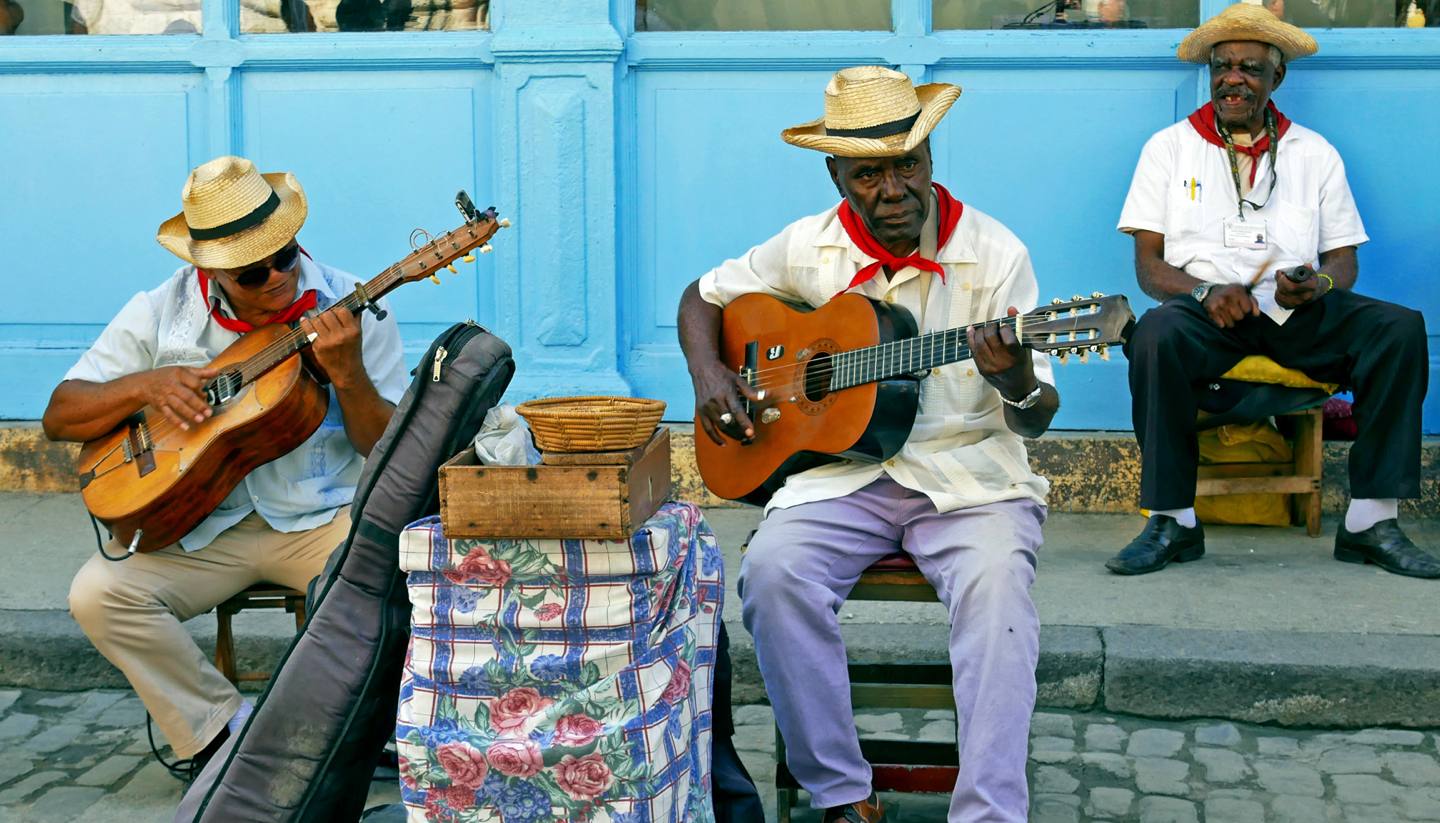
Introducing Cuba
- Images of Cuba
- History, language & culture
- Weather & geography
- Doing business & staying in touch
Plan your trip
- Travel to Cuba
- Where to stay
While you’re there
- Things to see & do
- Shopping & nightlife
- Food & drink
- Getting around
Before you go
- Passport & visa
- Public Holidays
- Money & duty free
Book your flights
- Havana José Martí International Airport
- Varadero Juan Gualberto Gómez Airport
- Varadero beaches
Cuba Visa and Passport Requirements
Visas for Cuba are required by all nationals referred to in the chart above.
The required tourist visa, known as a tourist card, allows the holder to stay in Cuba for 30 days and is valid for a single entry. You must also have a passport valid for the length of your proposed duration of stay, as well as proof of a confirmed return flight and booked accommodation.
In addition, since 1 January 2022 all travelers are required to fill in electronically the passenger information form " Declaración Jurada de Salud " within 72 hours before departing for Cuba. Travelers will then be provided with a QR code, which they must show in an electronic or printed version to authorities upon arrival. The electronic passenger information form replaced the following documents in their printed versions: International Boarding and Disembarkation Card, Customs Declaration Form and the Traveller's Health Affidavit.
Nationals of about 20 countries do not require a visa to visit Cuba, although the amount of time they can spend in Cuba varies; below is the list:
Citizens of these countries can stay in Cuba without a visa for up to 28 days: Barbados and Dominica.
Citizens of these countries can stay in Cuba without a visa for up to 30 days: Antigua and Barbuda, Belarus, Mongolia, Singapore, St Lucia, St Kitts and Nevis.
Citizens of these countries can stay in Cuba without a visa for up to 60 days: Grenada, St Vincent and the Grenadines.
Citizens of these countries can stay in Cuba without a visa for up to 90 days: Benin, Bosnia and Herzegovina, Kenya (once in a calendar year), Malaysia, Montenegro, Namibia, North Macedonia, Russia (can be extended to 180 days), Serbia, United Arab Emirates.
Citizens of Namibia can stay in Cuba without a visa for an undisclosed period.
In addition, there are several exceptions, like nationals of Venezuela with a normal passport can visit Cuba without a visa if they are travelling on duty under the Cooperative Integration Agreement. Nationals of China and Vietnam can also visit Cuba without a visa if they carry a passport for Public Affairs.
Please note that the visa regulations are being updated regularly, hence it is best to check with the nearest Cuban consulate before your trip.
To apply for a Cuba tourist card, contact the Cuban consulate listed on this official Representaciones Diplomáticas de Cuba en el Exterior website.
Nationals of ( 1 ) the USA are subject to the Cuban assets control regulations enforced by the Office of Foreign Assets Control (OFAC; http://www.treasury.gov/resource-center/sanctions/Programs/pages/cuba.aspx ). Travel for touristic purposes is still prohibited. That said, it's possible to visit Cuba as an American if you're visiting for one of 12 specified reasons. The permitted reasons are: family visits; official business of the US government, foreign governments, and certain intergovernmental organisations; journalistic activity; professional research and professional meetings; educational activities; religious activities; public performances, clinics, workshops, athletic and other competitions and exhibitions; support for the Cuban people; humanitarian projects; activities of private foundations or research or educational institutes; exportation, importation, or transmission of information or informational materials; and certain authorised export transactions.
The tourist card is valid for one entry of 30 days within 180 days of issue and can be extended in Cuba for a further 30 days.
Passengers who hold a confirmed onward ticket for a flight to another country within 72 hours and can show documents required for the next destination may be allowed to transit in Cuba without a visa.
Application to
Consulate (or consular section at embassy) in person or by post. You can get the contact information of the Cuban consulate in your country by visiting this official Representaciones Diplomáticas de Cuba en el Exterior website.
Working days
Allow for up to four weeks for visa processing.
Entry Documents
All visitors to Cuba are required to prove they have travel insurance covering medical expenses from approved foreign companies during their period of stay, or they will have to buy it from Cuban vendors on arrival in the country. US travel insurance policies are not accepted.
Extension of stay
You can extend your tourist card by an additional 30 days with the immigration office.
Entry with children
Parents travelling with children may be required to show proof of parental rights or guardianship.
Entry with pets
Bringing pets to Cuba is possible, but it can be time-consuming and costly. You need an international (or in the case of licensed travellers from the USA, a state) veterinary certificate, completed no more than ten days before travel to Cuba, along with proof of a rabies and distemper vaccination administrated at least 30 days before entry.
Embassies and tourist offices

Related Articles
Finding Hemingway’s Havana
"Everything that you're about to see is exactly as it was when Hemingway left. When he shut the door, he expected to be back a few months later, but..."
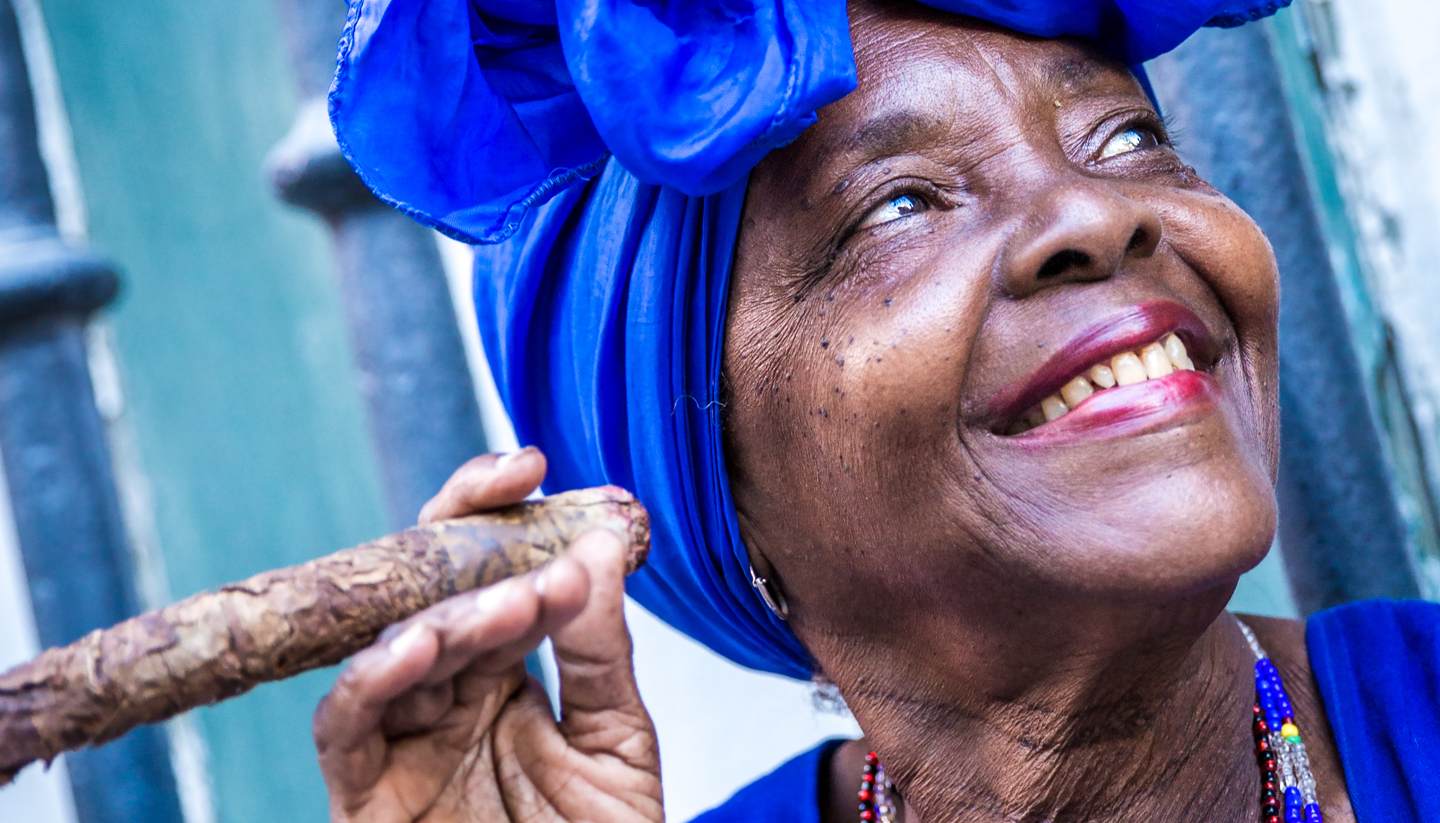
24 hours in: Havana
Buzzing, frenetic and steeped in history, Havana is one of the most bewildering and captivating cities in the Caribbean. Prepare for a culture shock and take a step back in time.
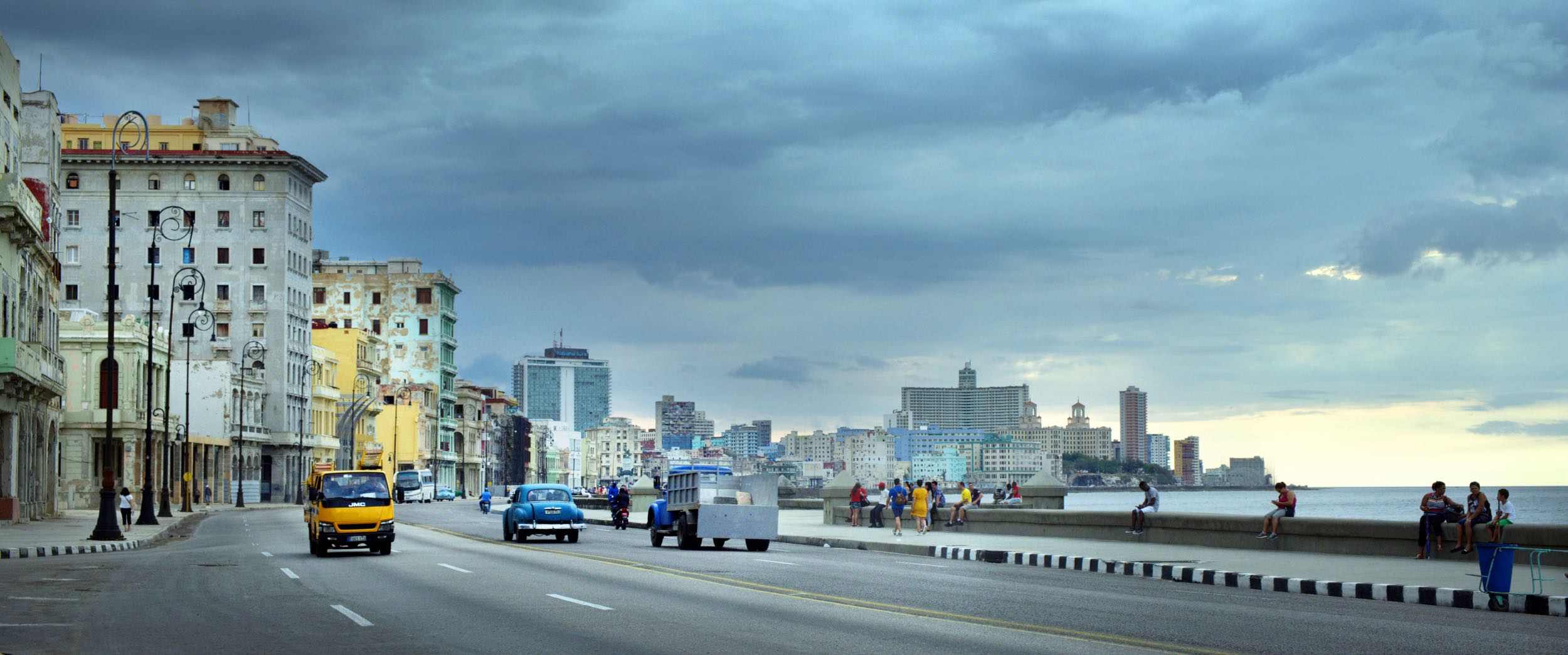
Rum, rhythm, and other reasons to visit Havana
Five days of Cuban rum, vintage chromed cars, a vibrant scene of music, art and dance give having a good time in Havana a new meaning, as Robin Brown discovers
Book a Hotel
© Columbus Travel Media Ltd. All rights reserved 2024
20 things to know before visiting Cuba

Jan 5, 2024 • 8 min read
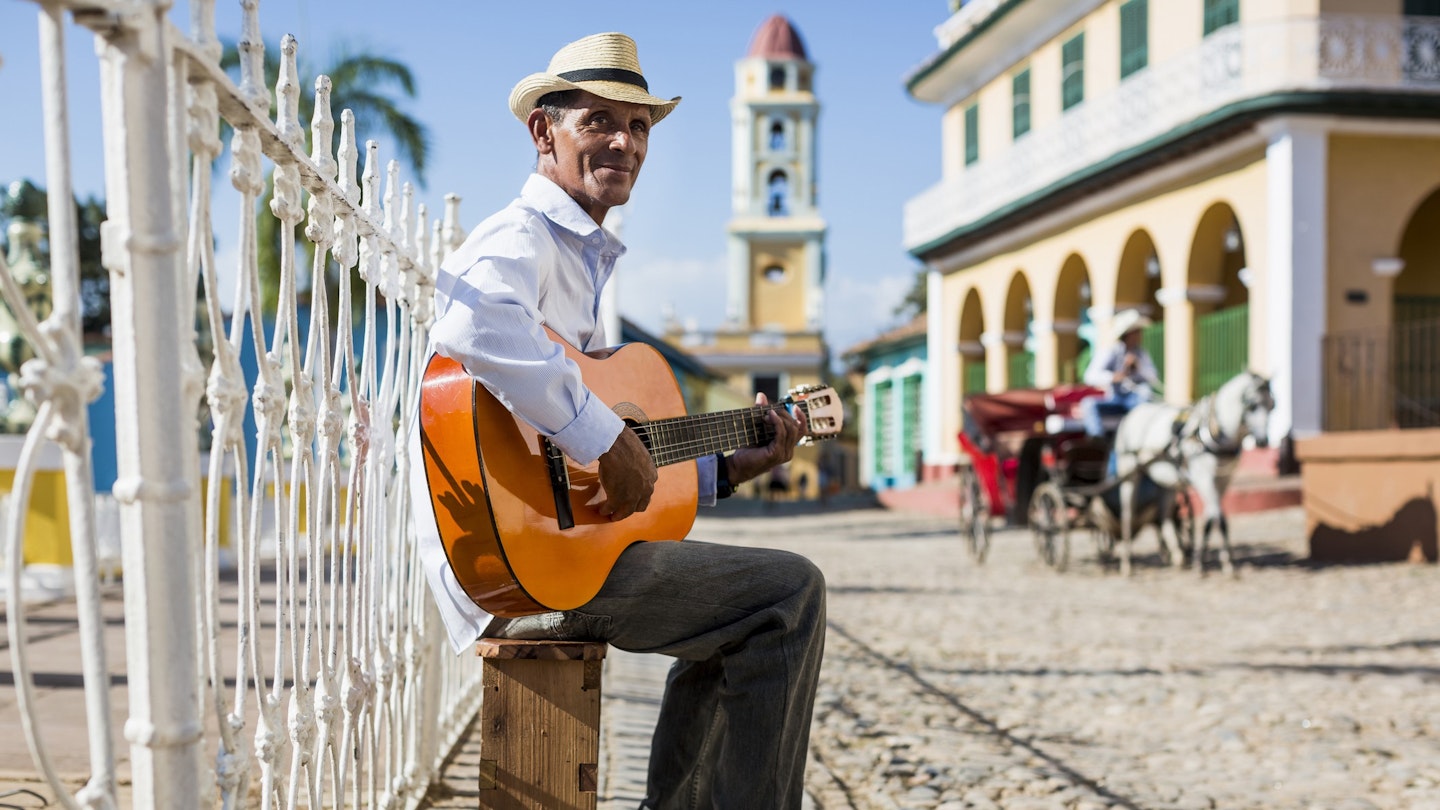
Be ready for your visit to Cuba with these top tips on what to expect © Westend61 / Getty Images
To a first-time traveler, Cuba can seem like a confusing jigsaw puzzle, particularly if you’re breaking free of the resorts and traveling around on your own.
The Spanish spoken here is fast and hard to decipher, many streets have two different names and the country’s fickle and highly complicated monetary situation could fill its own guidebook.
To help you be prepared, here is everything you need to know before planning a trip to Cuba.
1. Double-check your insurance
You are required to have medical insurance to visit Cuba and will need to bring digital or printed proof of your policy. Random checks are made at the airport. If you arrive without insurance, you’ll be asked to buy a Cuban policy at the airport for US$30.
2. Fill out your passenger information in advance
Cuba uses an online form called D’Viajeros to gather traveler information, including immigration and health data, in advance of travel. Fill out the form digitally up to 72 hours before your arrival in Cuba.
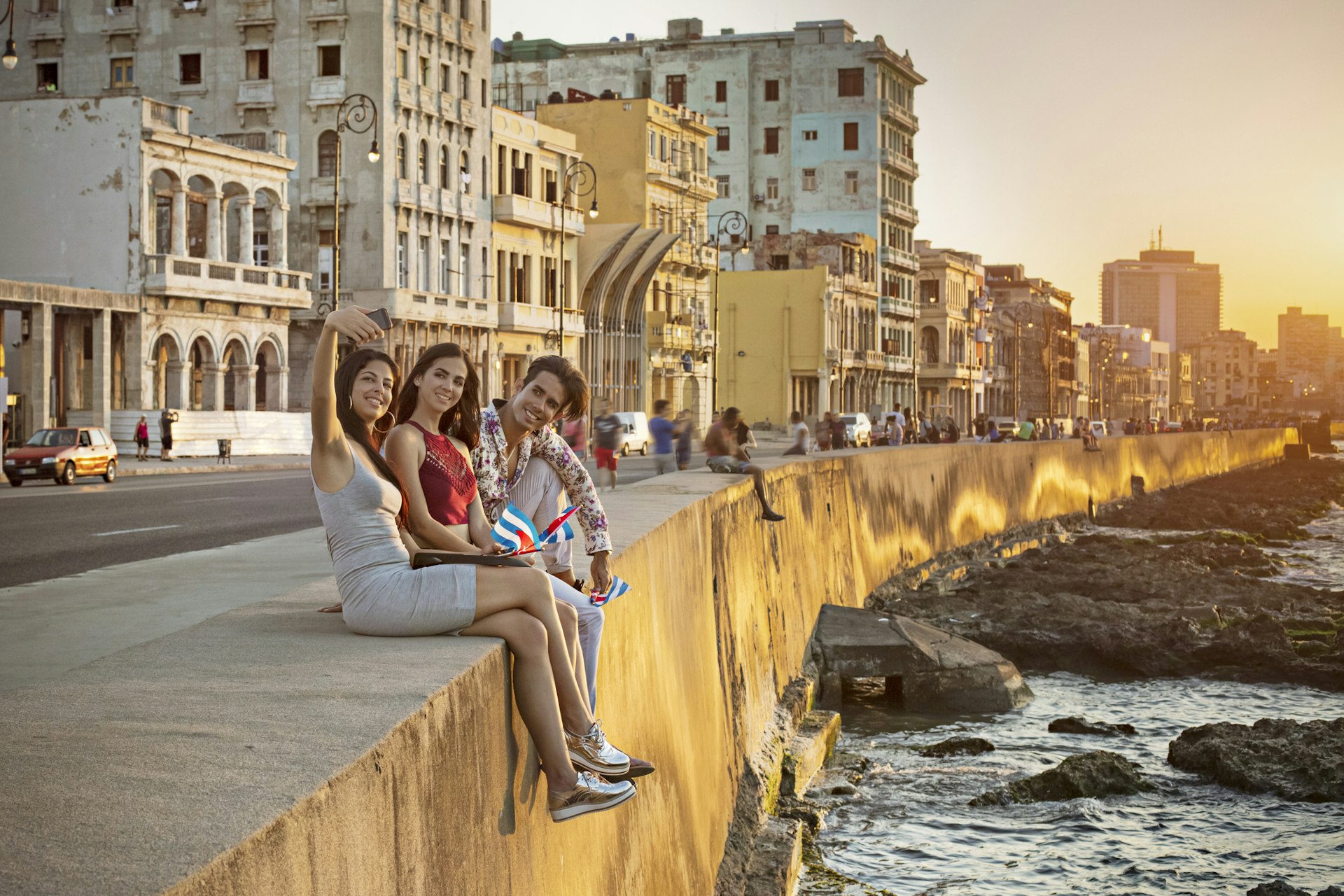
3. Every visitor needs a tourist card
To enter Cuba, all visitors need to present a completed tourist card . It’s usually available through your airline (ask when booking) and included in the price of your ticket.
If not, you can purchase one through a Cuban travel agency. Costs range from US$50 to US$85. Citizens of 20 African and Asian countries require a formal visa to enter Cuba. Check the situation for your country before booking.
4. Cash and currency: it’s complicated!
Money in Cuba is confusing, even to Cubans . Since the country abolished convertibles (CUC) in January 2021 and took the US dollar out of circulation in June 2021, there has been massive inflation and the emergence of a rampant black market. The knock-on effect is a bewildering dual economy.
The official currency of Cuba is the Cuban peso (CUP), but foreign currencies are also widely accepted, especially by private businesses who need hard cash to buy non-rationed goods in MLC (freely convertible currency) shops.
State-run enterprises and banks use official exchange rates. However, the prices of the superior services offered by private businesses generally reflect black market exchange rates.
Hence a main dish in a private restaurant in Havana will cost around CUP$500 (US$21). That’s an expensive meal if you’re paying in pesos bought from a Cuban bank.
However, most private restaurants will also accept payment in euros using a more favorable exchange rate. Some will even have a separate menu with prices printed in euros.
When buying something from a private business – be it a restaurant, casa particular (private accommodation) or taxi service – it’s usually best to pay in a foreign currency. Always ask upfront what currencies they accept and what exchange rate they use for their published peso prices.
Euros is the most interchangeable currency and the one preferred by Cubans. You can also use and exchange Canadian dollars and pound sterling.
US dollars still circulate on the black market, but we don’t recommend bringing them. The best bet, when you arrive, is to keep most of your money in a foreign currency and only change small amounts into pesos for incidentals like museum entry, concert tickets and tips.
5. MLC is a currency with no cash form
The Moneda Libremente Convertible (MLC) is a currency approved by the Cuban government in 2020 that can be used in certain shops to buy higher-end goods.
The currency doesn’t exist as cash and its value is pegged with the US dollar. It’s used mainly by Cubans with special magnetic cards.
Tourists needn’t worry too much about MLC$, although prices will sometimes be displayed in the currency in state-run enterprises such as cigar shops or airport souvenir stores where you can pay with a non-US credit card.
6. Only some credit cards will work
Credit cards are increasingly popular in Cuba and in many state-run businesses are the preferred (and sometimes only) method of payment.
Despite promises made in the Obama era, credit cards linked to US banks are not accepted. Private businesses almost never have credit card machines, meaning your only option is cash.

7. Pack your favorite casual clothes – and men need a shirt
Dress in Cuba is casual, so you can leave your high heels and tux behind. The only real dress code is in cinemas, theaters and nightclubs, where male patrons are required to wear long trousers and shirts with sleeves or half-sleeves.
8. Cuban Spanish is fast and often informal
If you speak Spanish, you’ll find that Cubans mostly use the informal tú form of address, rather than usted . In the plural, ustedes is used over vosotros .
If you don’t know someone, it’s best to address them as señor or señora , though you’ll hear Cubans use all kinds of substitutes such as socio , hermano , papa , chica/o and asere .
9. Cuban cities are where the streets have two names
In most Cuban cities, the streets have two names: a contemporary one that is noted on maps and marked on street signs, and a pre-revolutionary one that is still used widely by the locals.
This can become confusing, especially when locals, unaware of the new street names, start giving out directions or addresses using the colloquial nomenclature. Always double-check addresses and, if possible, get two potential names for the street you’re looking for.
10. Understand the local art of queueing
Cubans have to endure a lot of long waits in boring queues, so they’ve invented a way of doing it that doesn’t involve standing in line. In a Cuban queue, you simply roll up at the bakery/clinic/visa office and yell out to the assembled masses, "Quien es último?" (Who’s last?).
Hopefully, someone in a 400m vicinity will answer your polite entreaty with the word, "yo" (me). That person is your yardstick. As long as they’re still around, feel free to go for a walk, sit in the lotus position or buy ice cream. When they get called up, be on your toes, you’re next!
11. Ask questions more than once
Thanks to heavy bureaucracy, answers to simple requests aren’t always straightforward – or even correct. Probe politely and ask at least five different people before you make important decisions.
12. Bring something to keep you warm on a cold bus journey
Cuba has a countrywide state-run bus service called Víazul that connects all of the main cities and some of the smaller towns. Prices are charged in MLC$ (the same rate as the US$) and tickets must be paid for with a credit card either in person or online.
A second service called Conectando, run by Cubanacán, also puts on buses in peak season along some of the more popular routes. Bring a sweater/jacket for long bus rides – the air-conditioning is akin to a chilly day in Vancouver.

13. Cuba is considered a safe place to travel
Cuba is one of the safest countries in the Americas in terms of violent crime. Pick-pocketing is more common but not rampant, and is mostly avoidable if you follow a few basic precautions: Wear a money belt, use safe boxes in hotel rooms and don’t flash your cash in public.
14. Solo female travelers report receiving unwanted attention
Solo female travelers report experiencing a good deal of unwanted attention, but it didn't necessarily spoil their enjoyment of traveling in Cuba.
There is a fine line between being open and friendly and harassment, and some men can cross that line by being overly familiar or asking too many personal questions. Learn some key phrases in Spanish that make it clear when you're not interested.
15. Beware of forgeries
Never change money with unlicensed traders on the streets. You run the risk of receiving estafas (forged notes).
16. Bring your own medicines
On one level, Cuba has a good health system (it invented and quickly distributed three COVID-19 vaccines); on the other, it is perennially short of pharmaceuticals.
Bring all the prescription medications you think you’ll need, as well others you might like ibuprofen or paracetamol. If you’d like to donate some medicines to the people of Cuba, it is currently possible to bring in 10kg of medical supplies tax-free (pack them in a separate bag).

17. Avoid dodgy cigars
Cuba has its share of jineteros (touts) spinning elaborate stories about super-cheap, high-quality cigars procured by their brother/mother/cousin from the factory. Don’t believe them. Instead, buy your cigars in state-run shops such as the Casa del Habano chain. Cigars sold on the street are invariably factory cast-offs and not genuine.
18. Driving is not as easy as you think
With light traffic on the road, driving might seem like an easy proposition, but with elevated rental prices and cars often in short supply, it’s not always so.
Add in sporadic signposting, potholed roads and a wide array of hazards – goats, horses, bicycles, kids and slow-moving, fume-belching trucks – and you might want to consider getting the bus or, at least, employing the services of a chauffeur.
19. Bring toilet paper and sanitary products
The pandemic made the provision of antiseptic hand lotion more common, but the same can’t be said of toilet paper. Carry your own roll and/or gravitate to four- or five-star hotels when you’re caught short in the city.
Re-usable pads and silicon cups, or disposable pads and tampons are must-pack items if you're expecting your period while you're in Cuba. These are in high demand here.
20. Don’t drink the water
The water won’t kill you, but it might give you a little queasiness or an upset stomach. Fortunately, bottled water is abundant and cheap. An even better idea is to bring your own filter bottle or water purification tablets.
This article was first published February 2022 and updated January 2024
Explore related stories
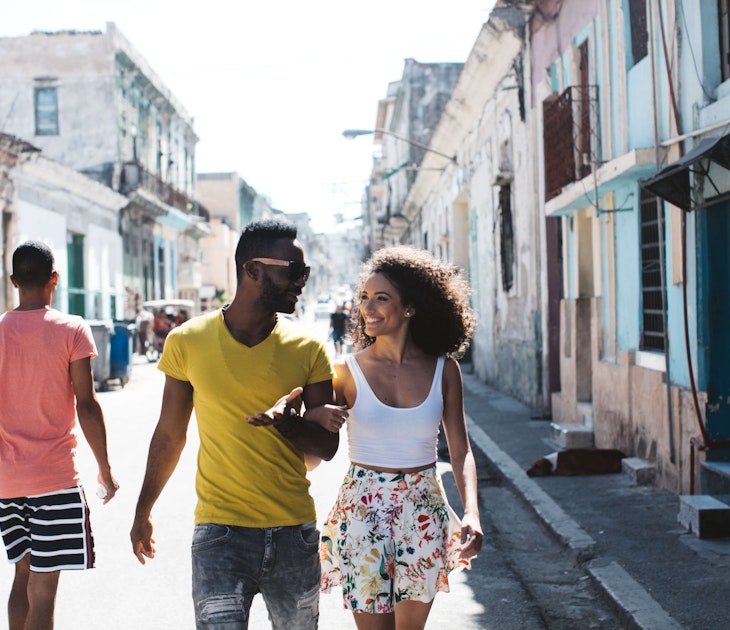
Tips & Advice
Jan 18, 2024 • 4 min read
Travelers often have questions about the visa process for Cuba and whether US citizens can even visit. Here’s our guide to Cuba’s visa requirements.

Jan 9, 2024 • 4 min read
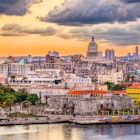
Jan 9, 2024 • 6 min read

Jan 7, 2024 • 10 min read

Jan 6, 2024 • 7 min read

Jan 5, 2024 • 4 min read

Nov 24, 2023 • 7 min read

May 6, 2023 • 9 min read

Jan 6, 2023 • 7 min read

Jan 5, 2023 • 8 min read
We’re sorry, this site is currently experiencing technical difficulties. Please try again in a few moments. Exception: request blocked

What visa do I need to travel to Cuba?
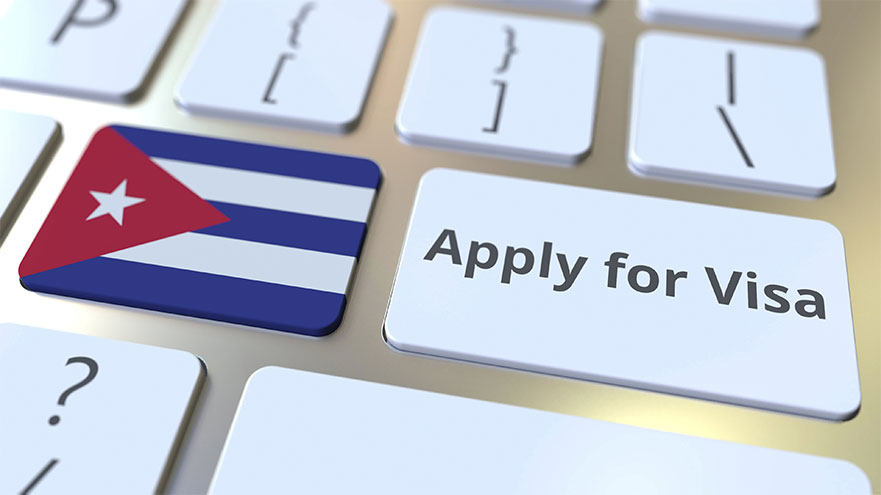
All UK and EU passport holders need to obtain a visa to travel to Cuba, and what they need is officially known as a ‘Cuba Tourist Card’, though often referred to as a ‘Cuba Tourist Visa’. This is issued as a piece of paper with your name and other details on it. It is a physical document, so you cannot get it sent to you electronically. You need get hold of this before you fly.
Pink or Green?
There are two types of Cuba Tourist Cards, and they are visibly different. One is pink, one is green.
The pink Cuba Tourist Card is for visitors to Cuba that are entering Cuba from the United States. That is to say, it doesn’t matter what your nationality is, or if you started your flight journey in the UK, so long as the flight that enters Cuba is from the United States, you need to get a pink coloured Cuba Tourist Card. These are easy to obtain as they are issued at the American airports from which you are flying or changing flights, so you don’t need to do anything in the UK before you leave, unlike the green version.
The green Cuba Tourist Card is for when you are entering Cuba from any country except for the United States. That means that if you are flying from the UK to Cuba, either directly or via a country that is not the United States, then it is essential that you have got your Cuba Tourist Card BEFORE the date of your UK flight to Cuba. This is because you cannot get the green Cuba Tourist Card from a UK airport.
So, unless you are flying from the UK to Cuba via the United States, you need to obtain the green Cuba Tourist Card, and you need to get it arranged in advance of your travel date. This can be done by going to the Cuban Embassy in London, or a much simpler, hassle-free process is to use Visa Cuba, The Cuba Tourist Board’s official partner.
SELECT A TYPE OF VISA
Select the type of visa you will need. Pink visas are required for those travellers beginning their journey in the US to Cuba . For those who travel from the Rest of the World to Cuba , they must opt for a green visa .
Choose this option if you are arriving from any country, except the USA

Choose this option if you are travelling to Cuba from or via any US airport
YOUR CUBA VISA FROM OFFICIAL PROVIDERS
Visa Cuba is not only official partners with the Cuban Consulate. We are the UK’s oldest and best reviewed Cuba Visa application service. We take pride in our flawless review record with independent review services. No fake news. Only authentic reviews from verified customers
- Process and Delivery
- Terms of Use
- Privacy Policy
- Search Search Search …
- Search Search …


All about the US ESTA and CUBA [ESTA After Visiting Cuba]
Many visitors to the USA travel there on the ESTA Visa Waiver program. However, a change by the US Government on 12 th January 2021 means that if you have visited Cuba since then you may no longer use the ESTA Visa Waiver Scheme. This article goes through the details of the changes, relevant dates, and what you’ll need to do if you (as an ESTA user) want to visit the United States. I’ll also cover the most frequently asked questions about the US ESTA and Cuba. Here’s our guide to the USA ESTA after visiting Cuba.
THIS POST MAY CONTAIN COMPENSATED AND AFFILIATE LINKS. MORE INFORMATION IN OUR DISCLAIMER
There’s a lot of detail in this article, and I’ve answered a lot of questions in it, so it’s best to read it in its entirety and then if you have questions afterward, either send an email or ask in the comments. It can seem complex at first glance, but the rules are pretty simple now.
Why is the USA ESTA Visa Waiver Scheme relevant to visiting Cuba?
Citizens of 41 countries around the world can use the United States ESTA Visa Waiver scheme to visit the US for business or pleasure. It involves completing an online form, paying a fee, and (if granted) removing the need to apply (in person) for a US Visa at an embassy or consulate.
However, on 12 th January 2021, The United States Government added Cuba as a country to the list of State Sponsors of Terrorisms. That meant that visitors to Cuba were no longer able to visit the USA using the ESTA Visa Waiver Scheme. It does NOT mean that you cannot visit the USA. It simply means that to visit the USA after a trip to Cuba you’ll need to apply for a regular visa, at an embassy or consulate of the United States.
The enforcement of this policy came in October 2022, and since then if you plan to visit the United States after visiting Cuba, then, even if you have an existing ESTA it will be invalidated. You are not eligible for an ESTA if you’ve been to Cuba.
The ESTA Application was updated on 6 July 2023 to include specific questions about travel to Cuba. Previously it had simply referenced “the list of State Sponsors of Terrorism”. The other countries on this list are Iran, North Korea and Syria.
Why the US ESTA cancellation is an issue for long-haul visitors to Cuba
Aside from the issue that you now need a visa to enter the United States, there’s another issue with ESTAs being canceled upon your visit to Cuba.
If you’re visiting Cuba from Europe, Australia, or New Zealand, then it’s highly likely that you may be flying via the United States. That means you likely want to fly home via the United States.
There’s no “in transit” in the United States
The United States does NOT have the concept of “in transit” for connecting flights. You must, even if you’re just getting off one plane and getting onto another, go through immigration and “enter” the United States, before then leaving again to get on your next flight. There’s more from the DHS here.
And if you’re relying on an ESTA to get you through this immigration process then you CANNOT. If you’ve flown into Cuba via the United States, then it’s likely that you’ll be stopped in the USA and told that your ESTA will be canceled if you continue with your onward trip to Cuba and that you will not be allowed to fly back via the United States.
If you want to visit the USA again after Cuba, you’ll need a full visa
If you plan to visit the USA after your trip to Cuba (or indeed if you’ve been there since 12 January 2021), then you will need to go through the full visa application process. This generally means getting an appointment at your local US Embassy or Consulate and obtaining a full US visitor’s visa (B1/B2), which is both expensive and time-consuming.
Am I trying to put you off visiting Cuba?
I just want to clear up, with this article, a lot of misinformation and ensure that you do not get stuck, or book flights via the USA that you will be unable to take.
Does visiting Cuba mean that I won’t be able to get a visa for the United States?
Not at all. If you’re ineligible for an ESTA, then the US Department of Homeland Security states that it does NOT mean that you’re ineligible for a regular visa.
Practical Steps to Take on Visiting Cuba
Here are several practical steps to take that can help you with regard to the ESTA after visiting the United States.
Make sure you don’t try and fly home via the United States
You’ll want to start by making sure that your return flight is NOT via anywhere in the United States unless you already have a regular B1 /B2 Visa for the United States.
The Cuban Government, since October 2022, is NOT stamping passports, unless you specifically ask them to, so there will be nothing in your passport to state that you’ve been to Cuba. However, lying to the American Government – aka making a false declaration to US Immigration Services can have serious consequences for your future travel, and not just to the United States. It’s just not worth it.
Apply for a US Visitors Visa
If you plan to visit the United States for business or pleasure, or if you’re a regular visitor, then you can apply for a 10-year visa. You can get a B1 Visa (which is mainly for business) or a B2 Visa which covers you for both business and pleasure. These are generally valid for 10 years. The time taken to process these visas will differ depending on your embassy, so you’ll want to allow plenty of time.
Investigate a USA Transit Visa If you Want to Fly Long Haul home via the USA
Thanks to Alan Crocker of Australian Travel Agency PleaseYourselfTravel who contacted us at Cuba’s Best and made us aware of the US Transit Visa. Also known as a “C” visa, it can be used for transiting the USA. Wait times at US embassies tend to be shorter for this type of visa, compared to the B1 or B2 visa.
Now what I don’t know is if this visa can be used to transit the USA after visiting Cuba. I’d recommend that you ask your local US embassy. And let us know what you hear, it could help other long-haul visitors to Cuba.
Keep your fingers crossed for change from the US Government
I’m a big believer in the phrase “Hope is not a strategy”, but perhaps a little hope would help here. The current US administration recently announced that visa processing will resume in the Havana Embassy “soon”, which is a good sign that there is always hope that Cuba could be removed from the State Sponsored Terrorism list.
Frequently Asked Questions about the US ESTA and Cuba
Here are just some of the most frequently asked questions about traveling to Cuba and the impact it has on ESTAs.
Can I get a different passport and then apply for an ESTA after visiting Cuba?
The question on the ESTA Visa Waiver Form is “Have you traveled to Cuba”? A different passport makes no difference to this answer. A different passport makes no difference at all to your eligibility for the ESTA Visa Waiver Scheme.
If I fly into Cuba visa the USA and they don’t tell me about this can I fly back?
No. Without a valid visa for the United States, you will be unable to board a plane out of Cuba going to the United States. Even if your flight is a transit flight. There’s no concept of “in transit” in the United States, so you have to go through immigration.
How long does it take to get a B1 or B2 Visa for the United States?
You’ll need to check timeframes with your local embassy as times differ depending on the country, time of year, and staffing.
If I traveled to Cuba before 2021 can I still travel to the USA on an ESTA?
Yes. The cut-off date is 12 January 2021, if you traveled to Cuba AFTER this date, then you are ineligible for the ESTA Visa Waiver scheme.
If I’ve already got an ESTA and go to Cuba what happens?
The Department of Homeland Security states “If an ESTA has already been approved and it is later determined that the traveler has been present in Cuba or holds dual nationality with both a VWP country and Cuba, the ESTA will be revoked. Ineligibility for an ESTA is not a bar to travel to the United States.”
Does Cuba Stamp Passports?
No. Cuba does not stamp passports, it’s the Cuban Tourist Card ( which I wrote about here ) that’s stamped. However, a passport stamp, whether it’s there or not, is irrelevant to the situation with an ESTA.
ESSENTIAL TIPS FOR EXPLORING CUBA INDEPENDENTLY
These are the resources and booking sites that we use when traveling to Cuba.
Get a Cuba Travel and Medical Insurance Quote from Visitors Coverage here – Alternatively, Civitatis Insurance is a great option for the required insurance for Cuba. You will need a Cuba Tourist Card to enter Cuba – some airlines include these, if yours doesn’t, buy one from EasyTouristCard – now valid for 90 days. Book your Viazul Bus tickets here Pre-book and prepay shared & private shuttles here Book the best FREE Walking Tours in Cuba Reserve attractions, day trips, and activities in Cuba here Get online in Cuba EASILY with a Cuba eSIM – read about Cuba ESIMS here , or buy a Cuba eSIM here .
Download and install a VPN BEFORE you travel to Cuba > discount coupon here Book Accommodation in Cuba’s Casa Particular here
Final Words on the USA ESTA after Visiting Cuba
This is a difficult but important article to write. After all, Cuba’s Best is all about promoting why you should come to the country! However, the elephant in the room must be addressed, and it’s only fair that you have all the information before traveling to Cuba. If you plan ahead, understand the rules, and manage your travel with them in mind, this is a minor inconvenience, but one you must be aware of. I am in no way suggesting that you do not visit Cuba, but simply that you are aware of the situation and are therefore able to plan around it.
Cuba’s Best is a participant in the Amazon Services LLC Associates Program, an affiliate advertising program designed to provide a means for sites to earn advertising fees by advertising and linking to amazon.com, amazon.co.uk, amazon.ca. Amazon and the Amazon logo are trademarks of Amazon.com, Inc. or its affiliates .
Sarah Carter
Leave a comment cancel reply.
Your email address will not be published. Required fields are marked *
Save my name, email, and website in this browser for the next time I comment.
2 thoughts on “ All about the US ESTA and CUBA [ESTA After Visiting Cuba] ”
- 2 Comments
Hi Sarah, thank you for this information. Would it be possible for you please to send me the Viazul timetable for February, 2024? Thank you in advance
Hi Derek, I’ll send it to you now, but be aware its all changing. Prices are going up as of March 1 and there’s no online availability for March onwards at this time. Sarah p.s. I’ll send updates once the new timetable is out too.
Privacy Overview

New Requirements for Travelers to Cuba as of Jan. 23

Cuba implements digital form for in advance visitors Customs declarations as well as personal and flight information
By El Toque
HAVANA TIMES – The Cuban government will require, as of January 23, 2023, a digital customs declaration for travelers entering the country. The declaration is part of a more extensive digital form (which also contains immigration and health information) that will be mandatory for visitors, both Cubans and foreigners.st
The digital form called D’ VIAJEROS ―which had been on test since November 2022― was definitively implemented by the Ministry of Transportation. The form is intended to replace the old paper affidavit format that passengers arriving in Cuba must fill out.
The questions on the form are designed to obtain advance information from those who need to enter Cuba and must be completed 48 hours before the trip in order to be shown, in the form of a QR code, to the airline and border authorities. The form can be accessed thr: https://dviajeros.mitrans.gob.cu/inicio
D’ VIAJEROS demands a series of mandatory data and other things of an optional nature. In its filling out, the visitor will find five sections: one is Customs; another to provide general information (name, surname, gender -it only allows you to choose between male and female-, country of birth, residence and travel document or passport); another for immigration information (arrival date, flight number, point of entry to Cuba and reasons for the trip); another for health data related to COVID-19; and finally the declaration of veracity of the data, which warns that “any omission or inaccuracy violates the provisions of the Cuban authorities.”
Changes in Customs regulations: personal baggage and parcel shipment
Back on August 15, 2022, new measures for the non-commercial importation and shipment of packages to Cuba entered into force. What are the main changes with the new requirements?
After filling out the online form, the site will generate a QR code that will be sent to the email that the passenger provides to the system. The traveler must keep the code in print or on their phone, since the airline’s representatives will request it prior to boarding and, in Cuba, the immigration and customs authorities will request it after arrival.
Cuban Customs approved the use of D’ VIAJEROS to collect the information that the institution needs from each person who enters the country. In the regulations, the institution agreed that the customs declaration, contained in D’ VIAJEROS, will also be available in paper format when the visitor does not have, for some reason, the online form.
The data that will be required on a mandatory basis are: the passenger’s general data, the airline flight data and the list of items to be imported, equipment or others, their quantity and value, and if they have technical authorization from the Ministry of Communications to import telecommunications equipment.
The amount of foreign currency that is brought in is also declared, but only if the amount exceeds five thousand dollars or other currencies or equivalent payment instruments. The possession of weapons of any kind, ammunition, drugs or substances with a similar effect, live animals, equipment or components for wireless telecommunications, products of animal or vegetable origin, articles for commercial purposes, cultural goods and pornography must be declared.
In a press conference, covered by the Cuban News Agency, directors of Cuban Aviation, Customs and the Ministries of Public Health and Tourism specified that the new platform will “facilitate and improve the experience of travelers in their transit through immigration, customs, and public health services, contributes to health controls, reduces the exchange of documents with the authorities, and speeds up procedures at the different air terminals by providing advance information.”
Read more from Cuba here on Havana Times
- River at Sunset in Matanzas, Cuba – Photo of the Day
- The Communist Party of Cuba’s Best Factory
2 thoughts on “ New Requirements for Travelers to Cuba as of Jan. 23 ”
and what EXACTLY are the questions that relate to covid vaccines? is a negative pcr test required to board an airplane into cuba?
Anyone who knows how things work in Cuba also know the official justification for this digital change is a pile of horse manure.
Comments are closed.
- Cuba Tourism
- Cuba Hotels
- Cuba Bed and Breakfast
- Flights to Cuba
- Cuba Restaurants
- Things to Do in Cuba
- Cuba Travel Forum
- Cuba Photos
- All Cuba Hotels
- Cuba Hotel Deals
- Last Minute Hotels in Cuba
- Things to Do
- Restaurants
- Vacation Rentals
- Travel Stories
- Rental Cars
- Add a Place
- Travel Forum
- Travelers' Choice
- Help Center
US and EU citizen traveling to Cuba - Cuba Forum
- Caribbean
- Cuba
US and EU citizen traveling to Cuba
- United States Forums
- Europe Forums
- Canada Forums
- Asia Forums
- Central America Forums
- Africa Forums
- Caribbean Forums
- Mexico Forums
- South Pacific Forums
- South America Forums
- Middle East Forums
- Honeymoons and Romance
- Business Travel
- Train Travel
- Traveling With Disabilities
- Tripadvisor Support
- Solo Travel
- Bargain Travel
- Timeshares / Vacation Rentals
- Caribbean forums

Hello TA friends,
I am a dual EU/US citizen and my wife is US only. We spend part of the year in Portugal, and it would be our starting point.
1. Fly from EU to Cuba, Cuba to USA.
2. Fly from EU to USA, USA to Cuba in the middle of our USA trip, then back to USA.
(Our schedule prevents us from flying EU to US, US to Cuba, Cuba to EU again, so leaving that off.)
Is there an advantage of doing one over another? What's the best way to do it legally? Happy to pay for the visa and meet a permitted travel criteria. I'm guessing I'd also have to meet that in addition to my wife, as even though I am a EU citizen, also a US.
And can you recommend a good tour company? We'd prefer a more loose/relaxed, less involved tour. Basically, on the lower end of what's required to meet the qualifications of a "tour." If we could stay in our own place and arrange a few sightseeing tours and be on our own most of the time, that would be ideal. We usually aren't tour people, but will play the game to meet the requirements (and hopefully help out some locals).
15 replies to this topic

You might be screwed by the visa situation...
Did something change? I’m not seeing any news.

I think @ 1 is assuming you have ESTA ..?
I'm not assuming anything... Not my job to aßumr... Just pointing out the potential for visa issues
If you are both US citizens you will not need a visa.
Just check the box on the OFAC forum.
Just make sure you travel on your US passport.
More detail would be great !!
Gordon, If not ESTA, what problem would there be with visas then ?
Could they fill out the forum returning from Cuba to the US or would anyone really care.
Option two would be no problem US to Cuba and return. You would just fill out the OFAC forum leaving the US.
As Joann mentioned no need to book any tours. Just tick the box and go.
Speak with your casa host they will arrange everything for you.
Something comes to mind that i think would be perfect for you,, a easy low key tour, for just you and your wife, reasonable, and covers alot. It would be a great introduction for you.
The on e i have in mind for you, is the '' Havana in a day '' tour. You can read the descriptions of the different ones they offer. It would include a guide that is with you the whole time, a classic car ride around, and walking tours, lunch, rooftop drinks, etc.. etc..
Here is a little clip that is on their websitre.. If you have any questions, just ask away.. :)
https://youtu.be/UUmJ-cOo0So
- Taking "taxis" in and around Havana that are not yellow 1:20 am
- Trip report - 12 days, Havana, Vinales, Trinidad, Playa Larg 11:59 pm
- Speaking Spanish in Cuba 10:18 pm
- How is this possible 9:55 pm
- WOW no rum ! 9:41 pm
- Cuba RED CRABS march at BAY of Pigs 8:48 pm
- Jose Marti Baggage Claim - recent experiences please? 8:36 pm
- Cuban cigars (and rum) & US Citizens 6:12 pm
- First time Cuba 6:11 pm
- Forget Mosquitoes, what are the Noseeums like now in April ? 4:39 pm
- Anyone in Cayo Largo or just returning? 3:50 pm
- Can I explore all Cuba in July or August despite the weather yesterday
- Iberostar Daiquiri yesterday
- ESTA Entry Denials? yesterday
- Cuba ... where's the best place to go? 13 replies
- Best Adults only resort in Cuba? 5 replies
- Where to stay in Cuba? 4 replies
- Cuba weather in september 6 replies
- Cuba Weather in October 22 replies
- weather in july and august please 8 replies
- Is Dukoral worth it? 8 replies
- Sharks !!! 65 replies
- Don Lino , Holguin 31 replies
- Cuba vs Dominican Republic 9 replies
- Online entry form to Cuba: https://www.dviajeros.mitrans.gob.cu/inicio
- Cuban Aduana News and Links
- Cuban tourist cards/visas from the UK
- Can US citizens Travel to Cuba?
- What is the difference between a visa and an OFAC license?
- What are the exchange rates?
- What should I bring to hand out to children?
- Reasonable expectations of a Cuban hotel
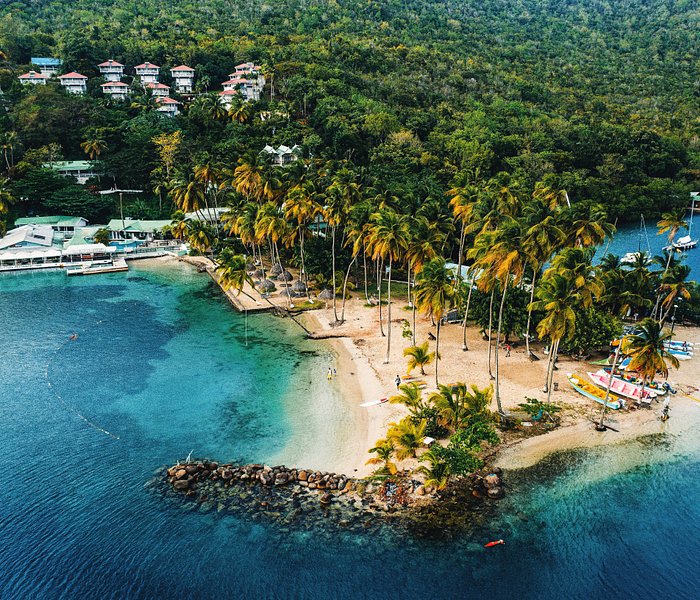
Can Europeans travel to the US if you have been to Cuba?
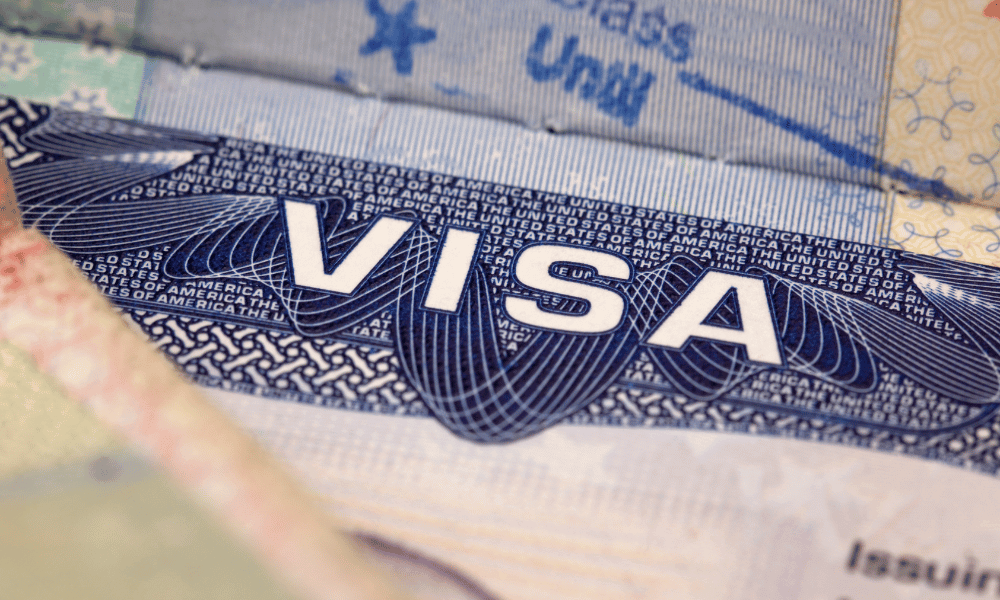
For Europeans looking for a 2023 winter holiday during the colder months, a holiday to Cuba is a no-brainer. Warm dry weather is pretty much guaranteed from November to April and the sparkling sea, stunning landscapes and unique culture make Cuba an epic holiday destination to remember.
But what happens if you want to visit Cuba (or you have already been) and you also want to travel to the US in the future? Can Europeans currently travel to the US if you have been to Cuba?
If you are reading this, chances are that you might have heard somewhere that Europeans cannot enter the US if they’ve recently travelled to Cuba (yikes!). But fear not, in this blog, Cubania Travel’s Director Lucy explains everything you need to know to enjoy your trip in Cuba AND travel to the USA worry-free.
From 12th January 2021, the US placed Cuba on the List of State Sponsors of Terrorism, a last-minute callous move by the Trump administration as they were leaving the White House. US law states that any person travelling to a country on the List of State Sponsors of Terrorism cannot apply for the ESTA Visa Waiver Programme and must apply for a visa via the US Embassy.
This obviously worried a lot of international travellers , especially Europeans who have enjoyed easy entry to the USA via the ESTA Visa Waiver Programme, and has created great confusion about who can/cannot enter the US and Cuba.
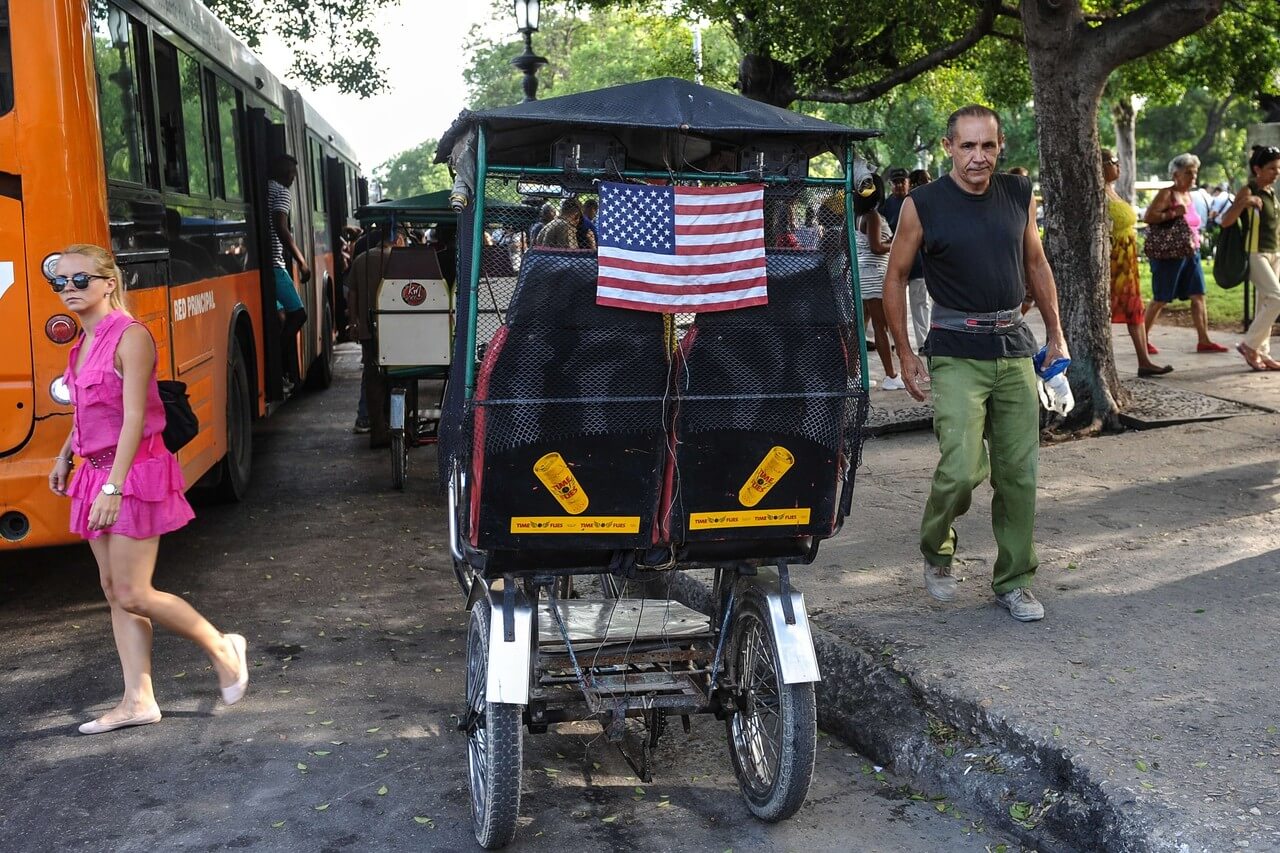
The legal bits
In October 2022, the US Government started enforcing the restriction on people who have travelled to Cuba since 12 th January 2021. These travellers are no longer eligible to apply for the ESTA Visa Waiver programme , and need to apply for a US visitor’s visa (B1/B2) via their nearest US Embassy.
According to the US Department of Homeland Security Website:
“ Ineligibility for an ESTA is not a bar to travel to the United States. Individuals who are not eligible to travel under the VWP may apply for a visa at any U.S. embassy or consulate”
However, the restriction does deter some from making plans to visit Cuba, a country which has endured hostile political and economic restrictions by the USA since 1959. The US Embargo on Cuba and other restrictions are an attempt to destabilise Cuba’s Revolutionary government, whose politics are at odds with the USA.
It seems like it’s specifically designed to deter non-US citizens from travelling to Cuba and forces them to comply with the US Embargo on Cuba, which the UN General Assembly votes overwhelmingly to condemn every year.

Can US citizens travel to Cuba legally?
Travel to Cuba from the USA is already restricted by the US Embargo on Cuba, but you can still do so. Head over to our blog where we share insights for US citizens who wish to travel to Cuba while supporting Cuban people.
Cubania Travel contacted the relevant authorities, and received assurances that this is more about political sabre rattling than anything truly sinister. It’s one more obstacle put in the way of Cuba, a country which has already endured a 60-year US Embargo. And the USA continues to make life difficult for the Cuban people.
While enforcement will likely be sporadic, it’s good to know how to avoid getting tangled up with US Immigration officers. So with that in mind…
What you need to know
Since October 2022, The Cuban authorities do NOT stamp any passports on arrival or departure ( unless you specifically ask them for a stamp in your passport) , eliminating concrete evidence that you’ve travelled to Cuba. It’s like you were never there!
I’m not suggesting you lie to US authorities but the reality is that, so long as you don’t tell US authorities of your recent trip to Cuba from Europe, there’s no way they’ll know! Unless, of course, you’re travelling to/from Cuba via the USA in which case they’ll definitely know!
If, however, you’re a frequent traveller to the US or you just don’t want to risk it, you’ll need to make a US Visitor Visa Application via the US Embassy . It’s pretty straightforward, but do make sure you apply ahead of time as the process can take a couple of weeks.
Okay, so how do I apply for a US Visitor’s Visa?
If you are a frequent traveller to the USA, it makes better sense to get a 10-year visa, which allows you to enter and exit freely without worrying about ESTA Waiver Restrictions.
There are 2 options:
👔 B1 VISA (visitor visa for those temporarily engaging in business activities)
🏖️ B2 VISA (visitor visa for pleasure or tourism)
Applying for a Non-Immigrant Visa to the USA is simple and the visas are generally valid for 10 years, costing $185. There is usually a 10-14 day delay between submitting your passport and receiving the visa so please make sure you allow time before travel.
If you’re travelling from the USA to Cuba and you are a non-US citizen, you’ll need to apply for a visa AND you will need to comply with US Regulations on travel to Cuba.
There is hope that Cuba will be removed from the Sponsors of Terrorism list soon. Recently, the Biden administration announced they will resume visa processing in their Havana Embassy in 2023. A good sign and a reason for cautious optimism with regard to US-Cuba relations.
So in conclusion, while the whole regulations, restrictions and process are an annoyance, they shouldn’t affect anyone’s future visits to either Cuba or the USA (phew!)

Thinking of planning your next holiday?
With over 20 years of experience organising sustainable tours in Cuba, at Cubania we have your back. Visit UNESCO World Heritage Sites with a guide, cycle your way through rural villages, relax in sun-kissed Caribbean sands or learn how to make the tastiest mojitos! With Cubania Travel you’ll get closer to authentic, Cuban life.
Related stories From Cuba
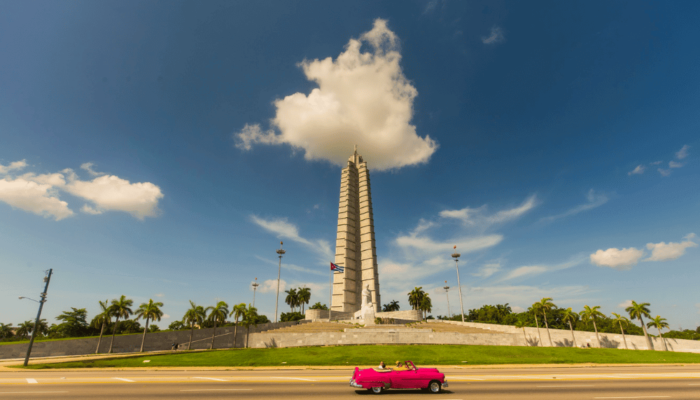
The Best Museums to visit in Havana
April 23, 2024, written by Cubania Team
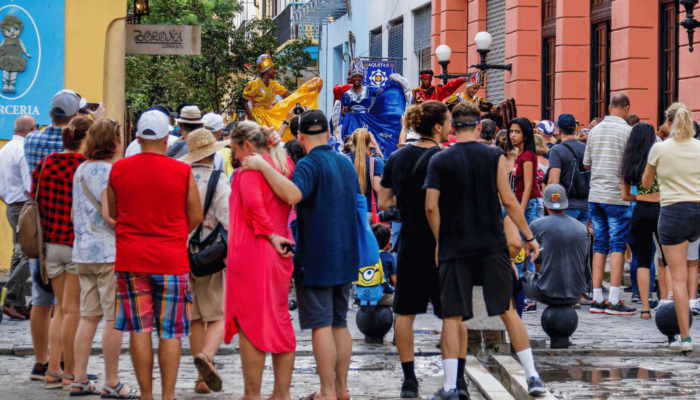
Is Cuba safe?
October 12, 2023, written by Cubania Team
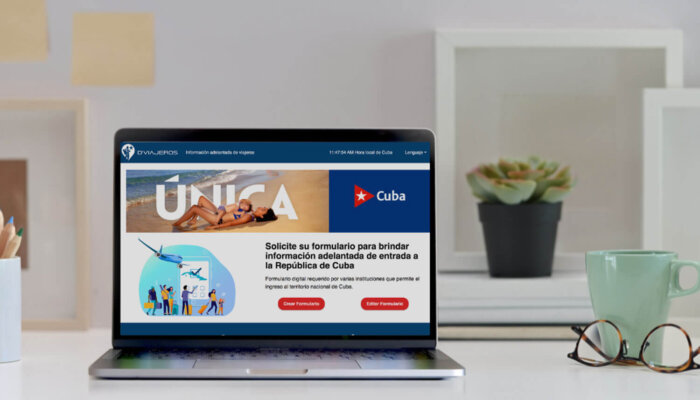
How to fill out the Cuba D’Viajeros Travel Form
March 3, 2023, written by Cubania Travel
Free Destination guide

Cuba is open! Book your trip now!
Free cuba travel guide.
Subscribe to our newsletter to get useful information and up-to-date insights on the island. Get tips on:
✔ Local language ✔ Cycling & Trekking ✔ Money & Costs ✔ Transport ✔ Hotel & Facilities
Business Channel B2C B2B Guides Journalists
Downloaded Destination Guide Bike Cuba Cubania Classic Cycle Cuba Insight Experience Havana Cuban Active Adventure Western Skyline Ride Cuba Completa Hip Havana Salsa Cubana Road Cycling Western & Central Cuba Bikepacking Cuba Kayaking in Cuba Run And Cycle In Cuba Havana Marathon Queer Cuba Havana Cycling Tour Western Cuba Trek Family Active Adventure Central Cuba Bike Ride Cuban Discovery Family Beach and Culture Central Cuba Trek Western And Central Cuba Trek Road Cycling Cuba Vuelta de Cuba
Consent I am happy for Cubania Travel to contact me occasionally via email
Click here to download Haga clic aquí para descargar
View Privacy Policy

RELATIONS WITH THE EU
The european union and cuba.
Established in 1988, diplomatic relations between the European Union and Cuba are based on a political dialogue that promotes cooperation, respect for human rights and the modernisation of the Cuban economy, as well as the development of joint responses to global challenges.
In an effort to update bilateral relations, limited between 1996 and 2016 by the so-called Common Position, the European Union re-launched a dialogue at the political level in 2008, complemented by development assistance. On 12 December 2016, the repeal of the Common Position and the signing of the Political Dialogue and Cooperation Agreement (PDCA) between the two parties gave new impetus to bilateral relations . The PDCA started to apply provisionally on 1 November 2017.
On This Page
Political relations, trade relations, european union-cuba development cooperation, humanitarian aid, eu-cuba political dialogue and cooperation agreement, bilateral and multilateral issues.
High-level political dialogue meetings started in 2008, in parallel with the programming of the first EU-Cuba bilateral cooperation strategy. Since then, both sides have discussed bilateral relations, regional issues in Cuba’s and the EU’s neighbourhood, and global issues of mutual interest, such as migration and international terrorism, with a view to identifying potential areas for cooperation. The European Union and Cuba seek to strengthen the United Nations as the core of the multilateral system and to promote the strategic partnership between the European Union and the Community of Latin American and Caribbean States (CELAC). The first chapter of the Political Dialogue and Cooperation Agreement (PDCA) provides for regular high-level political dialogue meetings.
The 27 EU Member States have bilateral diplomatic relations with Cuba.
Investments, exchanges and undertakings
The European Union remains Cuba’s main export and trade partner. It is also the largest foreign investor in the country (mainly in the tourism, construction, light industry and agro-industry sectors) and accounts for one third of the tourists arriving on the island.
Cuba’s main export goods are agricultural products, beverages, tobacco and mineral fuels, for which there is no preferential trade regime.
The main export goods from the EU to Cuba are food, chemicals products, plastics, basic metals and their manufactures, machinery, household appliances and transport equipment.
The PDCA contributes to creating a more predictable and transparent atmosphere for economic operators and increases their economic capacity to produce, trade and create jobs, but it does not establish a free trade area between the parties or cover investment protection.
The EU advocates diversification of exports from Cuba beyond the traditional products and cooperates to disseminate the necessary knowledge among Cuban exporters to improve the access of goods onto the EU market.
Equity and sustainability
Since 1988, the European Union has funded with around EUR 300 million more than 200 cooperation projects in the country. Some 80 projects worth EUR 155 million are currently ongoing, reflecting an increase of three times the average level of the last decade.
In the first twenty years, the main focus of this cooperation was on emergency projects. The first bilateral cooperation strategy was programmed in 2008, prioritising the sectors of sustainable agriculture and food security, renewable energy and climate change, and the modernisation of the economy, currently in force. The 2021-2027 programme will focus on supporting sustainable municipalities and boosting the national economy, with an emphasis on MIPYMEs and the sectors of agriculture, energy, communication technologies, creative cultures and biotechnology, including cooperation on development and access to vaccines against COVID-19.
In addition to bilateral, regional and thematic programmes, Cuba benefits from its participation in higher education (Erasmus +) and research (Horizon-Europe) programmes.
Emergencies and natural disasters
The Directorate-General for European Civil Protection and Humanitarian Aid has been providing emergency assistance to Cuba since 1993 to support the population affected by natural disasters. Since then, more than EUR 94 million have been granted for humanitarian aid actions on the island. Due to disaster risks and the vulnerability of the population, specific support of over EUR 6 million was provided for disaster preparedness, such as seismic risk reduction, hydro-meteorological early warning systems or resistance to droughts.
Following Hurricane Irma in September 2017, the European Union has provided EUR 1,6 million in humanitarian aid to some 25.000 vulnerable people living in the most affected areas. Immediate response to shelter needs has been prioritised in the target areas. As a complement, support is also provided for water, sanitation and hygiene in key health infrastructure, as well as epidemiological surveillance and rehabilitation of health services in the most deprived communities.
A new framework for diplomatic relations
Negotiations for the Political Dialogue and Cooperation Agreement (PDCA) were launched in April 2014 and concluded on 11 March 2016 . After the approval by the Council of the European Union, the PDCA was officially signed on 12 December 2016 . In parallel, the agreement was submitted to the EU Member States' national parliaments and to the Cuban National Assembly for ratification. The European Parliament gave its consent on 5 July 2017 . Most parts of the agreement start to apply provisionally from 1 November 2017.
The PDCA creates an enabling framework for enhanced political dialogue, for improved bilateral cooperation, as well as for developing joint action in multilateral fora. It defines general principles and objectives for the EU-Cuba relationship and includes three main chapters:
- Political dialogue, addressing issues such as human rights, small arms and light weapons and disarmament, migration, drugs, counter-terrorism, sustainable development.
- Dialogue on cooperation and sectoral policy, including areas such as human rights, governance, civil society, social and economic development, environment, regional cooperation.
- Trade and trade cooperation, dealing with principles of international trade and covering cooperation on customs, trade facilitation, technical norms and standards, sustainable trade and investment.
Month of Europe
Del 9 de abril al 9 de mayo de 202.
Nota de prensa sobre el Mes de Europa
El próximo domingo, 9 de abril, empezará el Mes de Europa en Cuba, evento multicultural internacional, que se celebrará durante un mes y culminará el 9 de mayo, Día de Europa. Organizado por la Delegación de la Unión Europea y todos los Estados miembros representados en Cuba, el Mes de Europa dará espacio a distintas expresiones artísticas, en especial fotografía, literatura, cine, teatro, música, en el marco de una programación creativa ecléctica, variada y novedosa. El objetivo es proponer una oferta artística que resalte los vínculos y el acervo común construido entre la Unión Europa y Cuba, que mezcle lo clásico y lo contemporáneo y, a su vez, las variadas tradiciones europeas con las cubanas. Para lanzar esta iniciativa, el 30 de marzo de 2023 en la Fábrica de Arte Cubano, los Embajadores de la Unión Europea y de los Estados miembros presentaron las varias actividades que tendrán lugar y la importancia de este proyecto, a la vez pionero y ambicioso, expresión de la identidad europea: “Unidos en la Diversidad”. Durante el lanzamiento del Mes de Europa estuvieron presentes, además, los representantes de distintas instituciones culturales y colectivos artísticas europeas y cubanas, en particular el Ministerio de Cultura, la Oficina del Historiador de la Ciudad de la Habana, la Cinemateca, representantes de la prensa, de los colectivos artísticos y el Cluster EUNIC, que fueron interlocutores claves para poder coordinar la realización del programa.

Can Americans Travel to Cuba? [2024 Legal Cuba Travel Guide]
I’m an American citizen who travels to Cuba all the time, so “can Americans travel to Cuba?” is one of the questions I’m most frequently asked related to Cuba travel. While many Americans believe that Cuba is still “off-limits” to American citizens, this couldn’t be further from the truth; there are many ways to legally travel to Cuba for American citizens.
Want to travel to Cuba from the United States – as a U.S. citizen or otherwise? Our ultimate guide to Cuba travel for Americans will show you how, answering some of the most common questions about Cuba travel safety , Support for the Cuban People travel , and more.
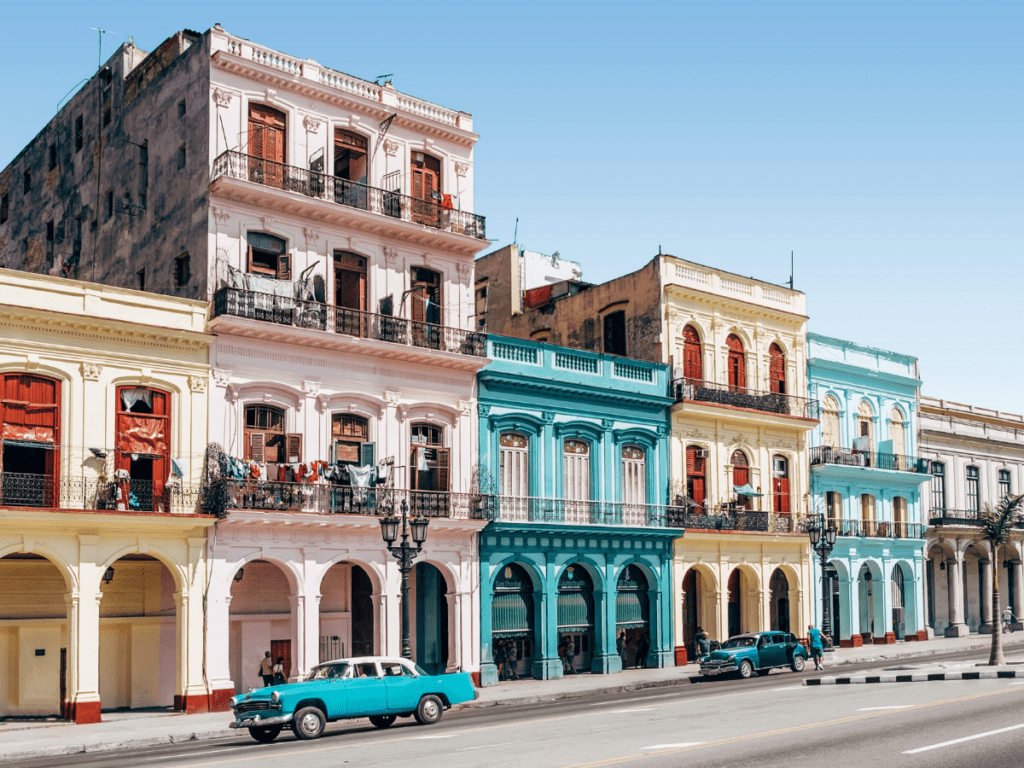
This post contains affiliate links that may reward me monetarily or otherwise when you use them to make qualifying purchases – at no cost to you. As an Amazon Associate, I earn from qualifying purchases. For more information, please read our disclosure policy .
American Travel to Cuba
The short answer to the question “can Americans travel to Cuba” is YES, American citizens can travel to Cuba.
Non-U.S. citizens are allowed to travel to Cuba via the United States as well. American citizens can fly from the United States directly to Cuba, travel independently (no need for a group trip or guided trip here!), and enjoy Cuba just as they would any other travel destination.
The longer answer to the question “can Americans travel to Cuba” is that while legal travel to Cuba is entirely possible and even quite easy, there are some important regulations around American travel to Cuba that travelers should be aware of.
U.S.-Cuba Policy Changes
For years, U.S.-Cuba travel by citizens of the United States has been restricted in many ways. In 2014, President Obama announced a new way forward in the relationship between the United States and Cuba, including lifting many of the travel restrictions that made it quite challenging for U.S. citizens to travel to Cuba.
While the subsequent Trump and Biden administrations have made slight changes to Obama’s new policies, Obama’s new Cuba policies remain mostly intact. Americans can still travel to Cuba more easily than they’ve been able to in decades .
Cuba Travel 101
- Currency in Cuba: A Local’s Guide for Travelers
- How to Get Wifi in Cuba [Updated!]
- Is Cuba Safe? Updated Cuba Safety Guide
- Ultimate Cuba Travel Guide – A Local’s Advice for Travelers
Can Americans Travel to Cuba?
Here’s why so many travelers ask us, “can Americans travel to Cuba?” – because Americans are still not able to legally travel to Cuba purely as “tourists.” Americans must still have a “reason” for traveling to Cuba.
Currently, the U.S. government doesn’t allow American citizens to Cuba as tourists. However, the U.S. government allows American citizens to travel to Cuba so long as they support local, non-government-owned businesses while in Cuba.
Essentially, yes, you can visit Cuba and travel exactly as you would anywhere else. Just avoid government-run hotels, restaurants, and tours while you’re there. This is actually incredibly easy, as all the best things to do in Cuba and the best places to visit in Cuba are local anyway!
So why might it feel like Americans can’t travel to Cuba (when it’s actually quite easy to travel to Cuba)? Americans must give a “reason” for traveling to Cuba – usually when purchasing an airline ticket or booking a hotel room.
How Can Americans Travel to Cuba?
You’ll probably need to check a box when purchasing your airline ticket asking for your “reason” for traveling to Cuba. No need to get nervous; this is easy – by stating that your trip to Cuba is in “ Support for the Cuban People ,” you’re simply acknowledging that while in Cuba, you won’t be staying at government-run hotels and the like.
It’s really that easy. Check a box on a form, and travel to Cuba.
Former President Obama’s policy changes towards travel to Cuba made this possible by creating 12 categories of authorized travel to Cuba , travel that is permitted by the U.S. government for American citizens looking to travel to Cuba. Now it’s as easy as checking a box and booking your airline ticket!
Best Places To Stay in Havana
- Casa Giraldilla ($)
- Casa Flamboyan ($ – $$)
- Residencia Santa Clara ($$)
- El Candil Boutique Hotel ($$ – $$$)
- La Reserva Vedado ($$$)
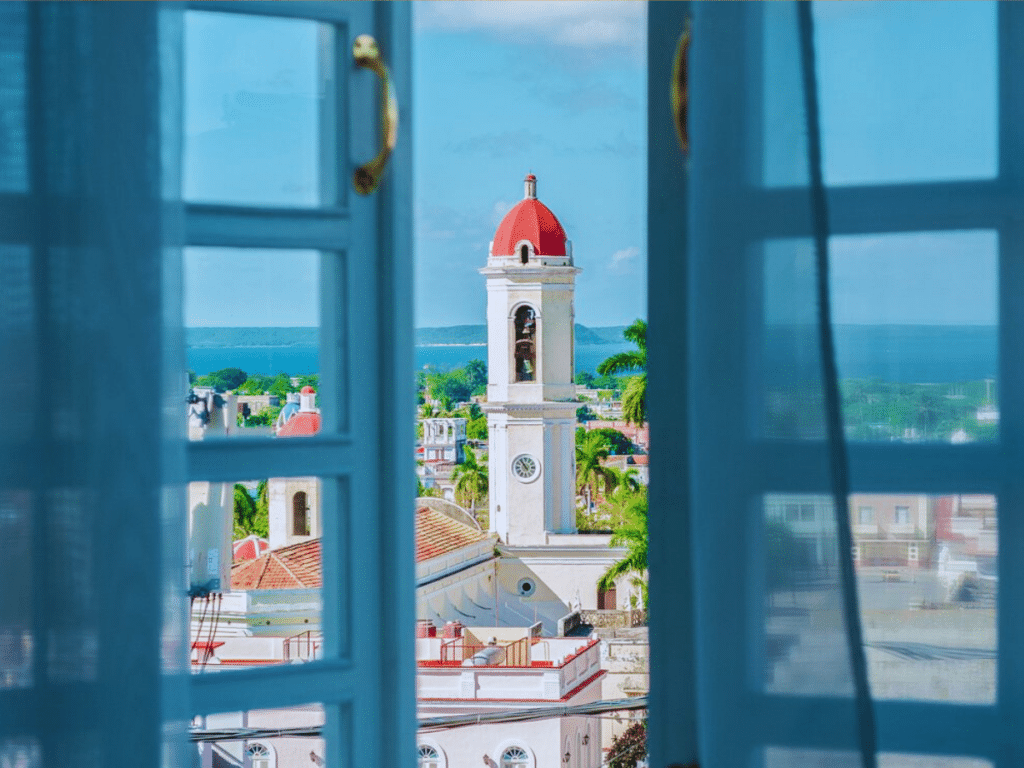
12 Categories of Authorized Travel to Cuba
Now when traveling to Cuba, you simply choose one of these twelve categories of authorized travel to Cuba that applies to your trip. Most travelers’ trips fall under the Support for the Cuban People category of authorized travel, which allows for travel to Cuba so long as it supports local businesses.
These are the Twelve Authorized Categories of travel to Cuba:
- Family visits
- Official business of the U.S. government, foreign governments, and international organizations;
- Journalistic activity;
- Professional research and professional meetings;
- Educational activities;
- Religious activities;
- Public performances, clinics, workshops, athletic and other competitions, and exhibitions;
- Support for the Cuban People ;
- Humanitarian projects;
- Activities of private foundations or research or educational institutes;
- Exportation, importation, or transmission of information or informational materials;
- Certain export transactions.
When you book your airline ticket to Cuba or book your accommodations in Cuba in advance, you may be asked your “reason” for traveling to Cuba. It’s as simple as stating “Support for the Cuban People.”
Read More: Support for the Cuban People Travel Guide
Support for the Cuban People
Most travelers looking to experience Cuba need to only offer “ Support for the Cuban People ” as their “reason” for traveling to Cuba. When you do this, it means you’re saying to the U.S. government that you acknowledge that you’re planning to spend your travel dollars with local, non-government-run businesses while you’re in Cuba – that’s it!
This is stuff that you’d be doing on a trip to Cuba anyway – which is what makes it so easy to travel normally this way.
Stay at a casa particular (room for rent or apartment for rent owned by a Cuban, Airbnb style) or a small boutique hotel, meet up with local guides, eat at any of the innovative new restaurants around the island , or experience Cuba from a local’s eyes. This is all permitted and encouraged on a “Support for the Cuban People” trip.
Travel Insurance
Cuba requires that all travelers have proof of a comprehensive travel insurance policy in order to enter the country. Check out our guide to travel insurance for Cuba for more details. We recommend these brands for Cuba travel insurance:
- Visitors Coverage : Coverage for Cuba travel available to citizens of all countries, though not currently available to residents of New York and Maryland in the United States.
- Insubuy : Coverage for Cuba travel available to citizens of all countries and states of the United States.

Regulations on American Travel to Cuba
While many continue to ask, “ can Americans travel to Cuba ?” – one of our most frequently asked questions on this website! – the answer is yes, and with these new regulations, it’s easier than ever.
However, keep in mind that some travel regulations put in place by the U.S. government still apply to American travelers visiting Cuba. These include:
- American citizens are no longer able to bring rum or cigars back from Cuba ;
- American citizens are now prohibited (by the U.S. government – not the Cuban government) from staying at a variety of hotels in Cuba ;
- Some methods of traveling to Cuba, such as “ people to people Cuba ” travel organized tours and the ability to travel to Cuba by cruise, have been scaled back or eliminated.
Read on for some of the regulations on travel to Cuba that Americans should be aware of during their trip.
Restricted Hotels in Cuba
One of the newer travel restrictions for Americans traveling to Cuba relates to places where American citizens are not allowed to stay while visiting Cuba. The Trump Administration developed a list of specific hotels and guesthouses that are either partially or entirely owned by the Cuban government and declared them off-limits to American travelers.
Check out the full list here before you book your accommodations in Cuba.
Some newspapers and websites have been incorrectly reporting that Americans are not allowed to stay in any hotel in Cuba, but this is not actually the case. Americans are just prohibited from staying in certain hotels that are owned entirely or partially by the Cuban government.
There are many boutique hotels with private ownership where Americans are still able to stay, plus private rentals called “casas particulares” or private home rentals like Airbnbs. In fact, some of our favorite hotels in Havana and around the country are still open and ready for business for American travelers ( La Reserva Vedado , La Rosa de Ortega , El Candil Boutique Hotel , and plenty of other Old Havana hotels are among our favorites in the capital).
Read More: Accommodation Guides in Cuba
- What is a Casa Particular Guest House in Cuba?
- Where To Stay in Havana, Cuba
- 10+ Best Resorts in Cuba
- 16+ Best Hotels in Cuba
Financial Restrictions in Cuba
It’s very important that American travelers to Cuba be aware of the financial and banking restrictions they will experience while traveling in Cuba. Because of the decades-long U.S. embargo against Cuba, American debit cards and credit cards will not work on the island as they do for those traveling from any other country .
That means that while American citizens can travel to Cuba, they can’t access their money from Cuba. This is quite important, as it means that if plan to travel to Cuba, you need to plan ahead and bring the money you’ll need for your trip with you in cash .
You can bring American dollars and convert them into Cuban pesos once you arrive in Cuba. Please read our complete Cuban currency guide before doing this – you’ll see why it’s not wise to exchange your money for Cuban pesos at the airport, for example, and learn how much money to bring with you on your trip to Cuba.
Read More: Financial Restrictions in Cuba
- The Ultimate Guide to Currency in Cuba
- Budget Your Trip: How Much Money To Plan To Bring to Cuba
Internet Restrictions in Cuba
There are no internet restrictions in Cuba that are specific to American travelers. However, it’s important to be aware of some important internet-related challenges in Cuba.
We get a lot of questions about whether there is internet access in Cuba , and if there is, if it’s safe to use or restricted by the government.
While the internet in Cuba is slower than you may be used to, it is now quite widespread and is pretty easy to use in most places in Cuba. Some websites are blocked in Cuba , and there have even been widespread internet outages during times of social unrest, though these blockages have mostly been of news websites that have been critical of the Cuban government.
However, the United States embargo of Cuba and the related financial and economic restrictions on U.S. companies doing business in Cuba means that some companies can’t offer their services to internet users in Cuba (notably, PayPal and many other banking apps, but the list changes) . You will not be able to access these websites from Cuba.
You can easily get around this if you want by using a VPN (Virtual Private Network) in Cuba . We recommend NordVPN – it’s by far the best VPN to use in Cuba But, even without a VPN, you can still use the internet in Cuba without too much of a hassle.
Read More: How To Use the Internet in Cuba: A Local’s Guide For Travelers
Read More: Internet in Cuba
- Guide to Using the Internet + Getting Wifi in Cuba
- Best VPN For Cuba ( + How to Use a VPN in Cuba)
Packing Restrictions in Cuba
There are some limitations worth noting about what you can bring into Cuba. While most are quite obvious – the usual dangerous substances and the like – there are a few rules for packing for Cuba , both for travelers from the United States and elsewhere :
- Travelers can not bring drones to Cuba
- Travelers can not bring devices like walkie-talkies, satellite phones, or GPS devices. Any personal computers, cell phones, cameras, or any other devices you normally travel with are absolutely fine – no worries here.
- Avoid bringing any literature to Cuba that may be seen as critical of the Cuban government. My brother was once held up in customs for bringing a university textbook with Donald Trump on the cover.
What to Pack for Cuba
Check out our Ultimate Cuba Packing List to help you pack for your trip – we’re sharing exactly what to bring to Cuba and what we never travel without.
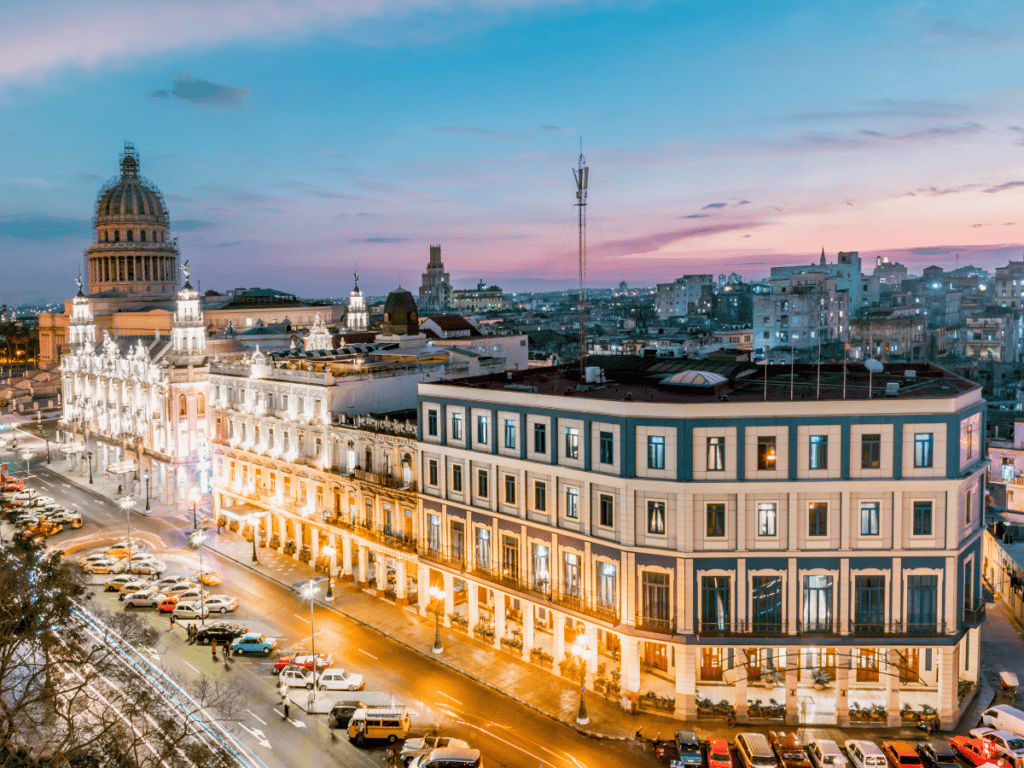
American Travel to Cuba – Frequently Asked Questions
Can americans fly to cuba.
Yes – Americans can fly to Cuba! American citizens can fly to Cuba either from the United States directly or from other countries. Flights to Cuba leave regularly from many of America’s largest cities like Miami, Ft. Lauderdale, Atlanta, and New York.
We frequently get the “can Americans fly to Cuba?” question because when travel to Cuba was more restricted, many Americans used to fly to Cuba through Canada or Mexico as a way to skirt travel restrictions .
However, flying to Cuba via another country like Mexico or Canada is no longer a necessity. Obama’s Cuba policy changes allowed many more American citizens to travel to Cuba much more easily, kicking off many more flights to Cuba from the United States.
Do Americans Have to Travel to Cuba With A Group?
One of the most popular ways to travel to Cuba prior to the Cuba travel policy changes of former President Obama was with a “people-to-people” group or as part of an educational tour. However, with the ease of traveling to Cuba from the United States now, these group travel to Cuba experiences are no longer a necessity to visit the island.
While there are groups that travel to Cuba and tout the ease of traveling to Cuba by purchasing a spot on a group trip doing so, it isn’t necessary to travel to Cuba with a group . Feel free to travel to Cuba with a group if this is your preferred style of travel – or plan your trip to Cuba independently, too!
Looking for some engaging tours in Cuba, ways to meet up with local guides, or fun activities and excursions in Cuba? We recommend Civitatis , a fantastic company we’ve used countless times before that runs tours with local guides all around Cuba.
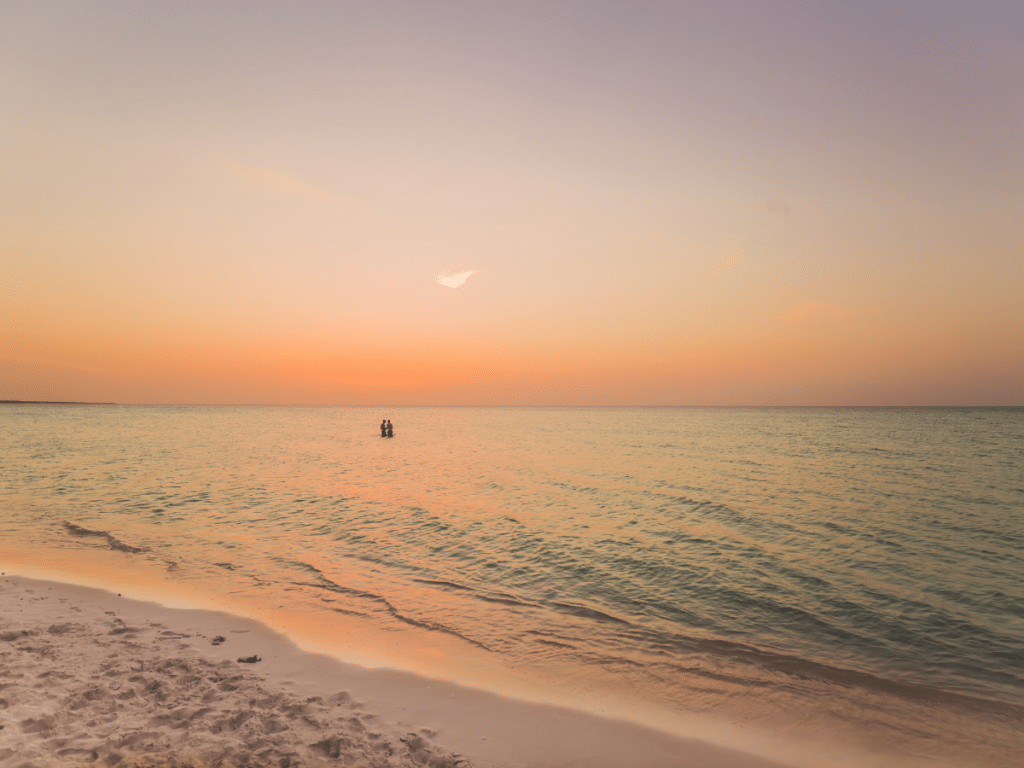
Is Cuba Safe for Americans?
While Cuba isn’t crime free, Cuba is a safe travel destination for all travelers, including American travelers. Statistics prove Cuba is quite a safe destination for travelers, and my own experience exploring Cuba, even as a solo female traveler, confirms it.
In all my years of visiting Cuba, I’ve never been met with anything other than curiosity when people leave I’m from the United States. While many Cubans disapprove of the government of the United States, I’ve never met a single Cuban who holds this against the average American citizen.
Overall, Cuba is safe for Americans , and as a traveler, you have absolutely nothing to fear while visiting.
Read More: Is Cuba Safe for Americans?
Travel Essential
Don’t think about traveling to Cuba without a good VPN (Virtual Private Network) . Using a VPN while connecting to the internet is an easy way to keep your personal information safe from hackers and trackers. We’ve used NordVPN for years and couldn’t recommend it more – it’s a must for safety online, especially in Cuba.
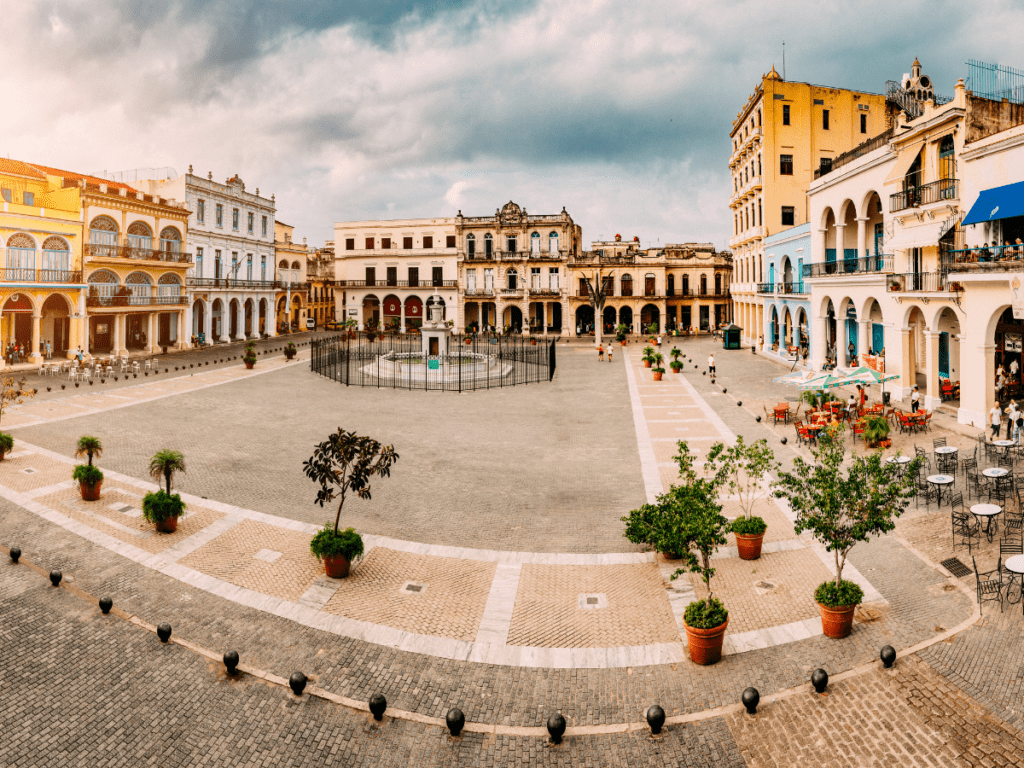
American Embassy in Cuba
Part of the policy changes of former President Obama in 2014 paved the way for reopening the United States Embassy in Cuba after nearly 60 years of closure. The American Embassy in Cuba offers emergency services to American citizens traveling in Cuba, including assistance with lost passports, registering births abroad, and more.
Located prominently along the Malecón sea wall in central Havana, the American Embassy in Cuba is currently providing services to American citizens and has just started providing limited services to Cuban citizens seeking visas to the United States.
As a U.S. traveler to Cuba, you should save the address and contact information for the embassy just in case you need it:
U.S. Embassy Havana Malecón, Calzada between L & M, Vedado Havana, Cuba Phone: (53)(7) 839-4100
Travel to Cuba
There are so many things to do in Cuba – much more than laying on the beach and riding in old, classic American cars.
Anything from taking a guided tour of Havana to eating at a restaurant operated as a small business or taking salsa classes are ways to enjoy Cuba. And guess what – all of these things are perfectly legal – and welcome! – when you travel to Cuba as part of a Support for the Cuban People trip.
For more travel ideas, we put together a guide to the top ten activities in Cuba for a Support for the Cuban People trip with our favorite ideas for a fantastic trip! Go ahead – get started planning your once-in-a-lifetime trip to Cuba! As always, we’ll be here to help you get started.

Carley Rojas Avila
Carley Rojas Avila is a bilingual travel writer, editor, content marketer, and the founder of the digital travel publications Home to Havana and Explorers Away. She is a serial expat and traveler, having visited 40+ countries and counting. Carley has written for publications like Travel + Leisure, MSN, Associated Press, Weather Channel, Wealth of Geeks, and more. Find her front row at a Bad Bunny concert, befriending street cats, and taste-testing every pizza in Havana.
Featured on

- What is a visa?
- Electronic Visa (eVisa)
- Visa on Arrival
- Appointment Required Visa
- Invitation Letter
- Arrival Card
- Passport Renewal
- Project Kosmos: Meet the man with the world's most challenging travel schedule
- Australia Visa and ETA requirements for US citizens explained
- Brazil eVisa for US citizens
- India Tourist Visa for UK citizens
- Possible B1/B2 Visa questions during the interview
Select Your Language
- Nederlandse
- 中文 (Zhōngwén), 汉语, 漢語
Select Your Currency
- AED United Arab Emirates Dirham
- AFN Afghan Afghani
- ALL Albanian Lek
- AMD Armenian Dram
- ANG Netherlands Antillean Guilder
- AOA Angolan Kwanza
- ARS Argentine Peso
- AUD Australian Dollar
- AWG Aruban Florin
- AZN Azerbaijani Manat
- BAM Bosnia-Herzegovina Convertible Mark
- BBD Barbadian Dollar
- BDT Bangladeshi Taka
- BGN Bulgarian Lev
- BIF Burundian Franc
- BMD Bermudan Dollar
- BND Brunei Dollar
- BOB Bolivian Boliviano
- BRL Brazilian Real
- BSD Bahamian Dollar
- BWP Botswanan Pula
- BZD Belize Dollar
- CAD Canadian Dollar
- CDF Congolese Franc
- CHF Swiss Franc
- CLP Chilean Peso
- CNY Chinese Yuan
- COP Colombian Peso
- CRC Costa Rican Colón
- CVE Cape Verdean Escudo
- CZK Czech Republic Koruna
- DJF Djiboutian Franc
- DKK Danish Krone
- DOP Dominican Peso
- DZD Algerian Dinar
- EGP Egyptian Pound
- ETB Ethiopian Birr
- FJD Fijian Dollar
- FKP Falkland Islands Pound
- GBP British Pound Sterling
- GEL Georgian Lari
- GIP Gibraltar Pound
- GMD Gambian Dalasi
- GNF Guinean Franc
- GTQ Guatemalan Quetzal
- GYD Guyanaese Dollar
- HKD Hong Kong Dollar
- HNL Honduran Lempira
- HTG Haitian Gourde
- HUF Hungarian Forint
- IDR Indonesian Rupiah
- ILS Israeli New Sheqel
- INR Indian Rupee
- ISK Icelandic Króna
- JMD Jamaican Dollar
- JPY Japanese Yen
- KES Kenyan Shilling
- KGS Kyrgystani Som
- KHR Cambodian Riel
- KMF Comorian Franc
- KRW South Korean Won
- KYD Cayman Islands Dollar
- KZT Kazakhstani Tenge
- LAK Laotian Kip
- LBP Lebanese Pound
- LKR Sri Lankan Rupee
- LRD Liberian Dollar
- LSL Lesotho Loti
- MAD Moroccan Dirham
- MDL Moldovan Leu
- MGA Malagasy Ariary
- MKD Macedonian Denar
- MNT Mongolian Tugrik
- MOP Macanese Pataca
- MUR Mauritian Rupee
- MVR Maldivian Rufiyaa
- MWK Malawian Kwacha
- MXN Mexican Peso
- MYR Malaysian Ringgit
- MZN Mozambican Metical
- NAD Namibian Dollar
- NGN Nigerian Naira
- NIO Nicaraguan Córdoba
- NOK Norwegian Krone
- NPR Nepalese Rupee
- NZD New Zealand Dollar
- OMR Omani Rial
- PAB Panamanian Balboa
- PEN Peruvian Nuevo Sol
- PGK Papua New Guinean Kina
- PHP Philippine Peso
- PKR Pakistani Rupee
- PLN Polish Zloty
- PYG Paraguayan Guarani
- QAR Qatari Rial
- RON Romanian Leu
- RSD Serbian Dinar
- RUB Russian Ruble
- RWF Rwandan Franc
- SAR Saudi Riyal
- SBD Solomon Islands Dollar
- SCR Seychellois Rupee
- SEK Swedish Krona
- SGD Singapore Dollar
- SHP Saint Helena Pound
- SLL Sierra Leonean Leone
- SOS Somali Shilling
- SRD Surinamese Dollar
- SVC Salvadoran Colón
- SZL Swazi Lilangeni
- THB Thai Baht
- TJS Tajikistani Somoni
- TOP Tongan Pa anga
- TRY Turkish Lira
- TTD Trinidad and Tobago Dollar
- TWD New Taiwan Dollar
- TZS Tanzanian Shilling
- UAH Ukrainian Hryvnia
- UGX Ugandan Shilling
- USD United States Dollar
- UYU Uruguayan Peso
- UZS Uzbekistan Som
- VND Vietnamese Dong
- VUV Vanuatu Vatu
- WST Samoan Tala
- XAF CFA Franc BEAC
- XCD East Caribbean Dollar
- XOF CFA Franc BCEAO
- XPF CFP Franc
- YER Yemeni Rial
- ZAR South African Rand
- ZMW Zambian Kwacha
We've updated our app!
Download it now
CUBA VISA FOR EU CITIZENS
IMPORTANT NOTE: iVisa is not offering this eVisa at the moment. You'll need to go to an embassy to get the Cuban Tourist Visa. However, stay tuned because we'll launch this product very soon
According to Cuba’s visa policy, all travelers who wish to cross the Cuba border need a visa , except for the nationals from the visa-exempt countries. Depending on your nationality, you are eligible for a Cuba visa, which you can get at the nearest embassy, or you can apply for a Tourist Card in certain points, but for that, you still need to contact the Embassy for more information. As far as EU citizens are concerned, all the nationals from an EU state member must apply for a Cuba Visa.
At the moment, iVisa can not provide you any Tourist Card or eVisa since we're a company from the US , but we can still provide you some valuable information about this destination.
Read the information below to learn more about this document.

Frequently Asked Questions
Do eu citizens need a visa to enter cuba.
Yes, all the citizens from an EU country need a visa to properly enter this Caribbean country.
What are the requirements for EU citizens?
If you want to apply for a Cuba Tourist card , you should know that the requirements are easy to meet. When you apply online using the services provided by iVisa, you do not have to upload any document. You just need a valid passport, and to fill in a form. However, once you arrive in Cuba, you need to provide the following documents:
Valid passport – the passport you have needs to be valid for at least another 6 months from the date of arrival in Cuba. If it is not, you need to apply for a renewal.
Tourist Card – this is the same as a Cuba visa that iVisa will send to you via postal mail.
A flight itinerary both to and from Cuba .
Travel insurance – this is a rule that began to take effect back in 2010. If you do not have travel insurance, you need to purchase one once you arrive in Cuba.
How to apply for a Cuba visa for EU citizens?
iVisa has created the most accessible application form so that you have an easy time completing it. It should not take you more than 10 minutes to go over it, and if you need help with anything, iVisa has a fantastic support service that you can contact 24/7.
The application form has two simple steps :
The first one will ask you to fill in a personal and travel information form . At the same time, you need to select a visa type and a processing time , both of which determine the cost of your Tourist Card. As for the former, as an EU citizen, you are required to apply for an International Tourist Card. When it comes to processing time, you can choose the one that suits your needs. Here are your options:
Standard processing time – your application will be processed and your Tourist card delivered in 3 to 5 business days. This option costs $55.
Rush processing time – your Tourist card will arrive within 1 to 3 business days, and the fee is $75.
Super Rush processing time – you will have your Cuba Tourist card in 1 business day, and you will be charged $95. The shipping is included in the price in all three cases.
The second step consists of revision and payment . It is crucial that you double-check the information you provided in step one because you cannot correct your mistakes once your application reaches the processing phase. If any errors are made, you need to repeat the process. Payment can be made using one of the many available means accepted by iVisa. You can use a credit/debit card or a Paypal account. After you are done, just submit your application and then wait for your Cuba Tourist Card to arrive in the timeframe of your choice.
The conclusion is that a Cuba Visa for EU citizens is easy to obtain. When you apply online, the application process is fast and efficient, and iVisa will do most of the work for you. The document you receive allows you to stay in Cuba for up to 30 days, but you can request an extension if you want. You are granted a single entry.
Related Articles
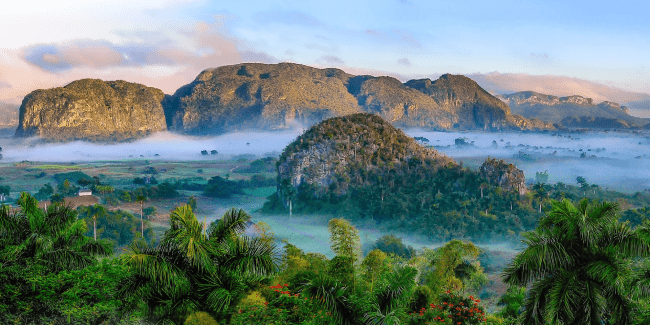
Cuba visa policy
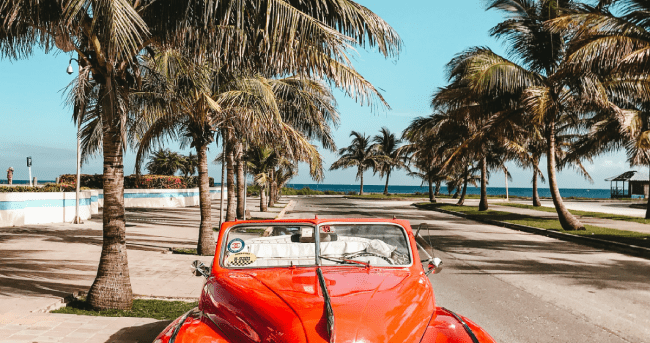
Cuba Vaccination Requirements | Do I need a vaccine to travel to Cuba?

Cuba Covid Quarantine
- iVisa is NOT affiliated with any government agency. This site does not provide legal advice and we are not a law firm. None of our customer service representatives are lawyers and they also do not provide legal advice. We are a private, internet-based travel and immigration consultancy provider dedicated to helping individuals travel around the world. You may apply by yourself directly on the various government websites. The source of information: https://www.dviajeros.mitrans.gob.cu/inicio
Watch CBS News
Top Cuban official says country open to more U.S. deportations, blames embargo for migrant exodus
By Camilo Montoya-Galvez
April 18, 2024 / 4:22 PM EDT / CBS News
Washington — Cuba's government is willing to accept more deportation flights from the U.S. of Cuban migrants, who have traveled to the southern border in record numbers over the past three years, a top Cuban official told CBS News in an exclusive interview.
After a two-year pause, the U.S. restarted deportation flights to the island last year. Since then, the U.S. has been sending one flight with Cuban deportees to Havana each month.
But in an interview with CBS News this week, Cuba's Deputy Foreign Minister Carlos Fernández de Cossío said Cuban officials are willing to accommodate more than one flight per month.
"We're open to having more" deportation flights, said Fernández de Cossío, who visited Washington this week to meet with Biden administration officials for the latest round of migration talks between the two countries.
Since the 1959 Cuban Revolution, the U.S. and Cuba have had a deeply contentious relationship. The Cold War-era rivals still bitterly disagree on many issues, from Cuba's human rights record and its ties to China and Russia to the decades-long American embargo on Cuban imports and exports.
But Washington and Havana have worked together on immigration, including by signing the 1994 U.S.-Cuba Migration Accords, which officials from both nations are discussing this week. The two countries' work on immigration has intensified in recent years amid the record arrival of hundreds of thousands of Cubans to the U.S.-Mexico border.
Since the start of fiscal year 2021, the U.S. has processed more than 450,000 Cuban migrants at the southern border, according to Customs and Border Protection data. The flow of Cuban migrants to the U.S. border has slowed since last year, when the Biden administration created programs that have allowed some Cubans to fly into the U.S. legally or appear at an official border crossing.
In the interview this week, Fernández de Cossío blamed the exodus from Cuba in recent years on the U.S. embargo and other American policies, including the 1960s Cuban Adjustment Act, which created a special pathway to permanent U.S. residency for certain Cuban migrants. Only Congress can change that law.
Fernández de Cossío said the U.S. is "aiming at destroying the Cuban economy" through its sanctions. He did not concede that economic mismanagement and repressive policies by Havana have also driven Cubans to flee the island, as the U.S. government has argued.
"You can speak about other factors, but if you have a consistent policy by the most powerful economy in the world to try to destroy the livelihood of a whole population, 11 million Cubans, it is logical to expect people, a segment of the population, to want to leave the country," he said.
In 2023, the U.S. Department of Homeland Security assessed that "Cuba's deteriorating economic conditions and political repression continue to increasingly drive Cubans out of their country."
Fernández de Cossío also cited the lack of some legal channels for Cuban citizens to come to the U.S. for illegal crossings along the southern border by Cubans.
He urged the State Department to resume the processing of tourist and short-term visas in Havana. The Biden administration restarted immigrant visa processing in Cuba, but short-term visa seekers in Cuba still have to travel to a third country to have their cases processed.
Fernández de Cossío said U.S. officials informed him they would resume full visa processing in Cuba in the future.
Representatives for the State Department did not respond to requests to comment on Fernández de Cossío's remarks.
Fernández de Cossío expressed some concern about additional U.S. sanctions if former President Donald Trump is elected in November. During Trump's tenure, the U.S. had a more aggressive stance towards Cuba, reversing the Obama administration's attempt to normalize relations with Havana.
"Of course we're concerned if there are additional economic measures [against] Cuba, regardless of who wins the election. The Biden administration has very faithfully applied the policies put in place by the Trump administration and added some," he said. "So we would not [be] surprised they would do it. It would be unfair, and we believe it would be immoral, but we have to acknowledge that would happen and [it] gives us room for concern."

Camilo Montoya-Galvez is the immigration reporter at CBS News. Based in Washington, he covers immigration policy and politics.
More from CBS News

Pelosi says Netanyahu "should resign"

Divided Supreme Court wrestles with dispute over Idaho abortion ban

Attorneys for American imprisoned by Taliban file urgent petitions with U.N.

3 great reasons to open an online savings account this month
Cuba calls on US to ease sanctions on eve of migration talks
- Medium Text
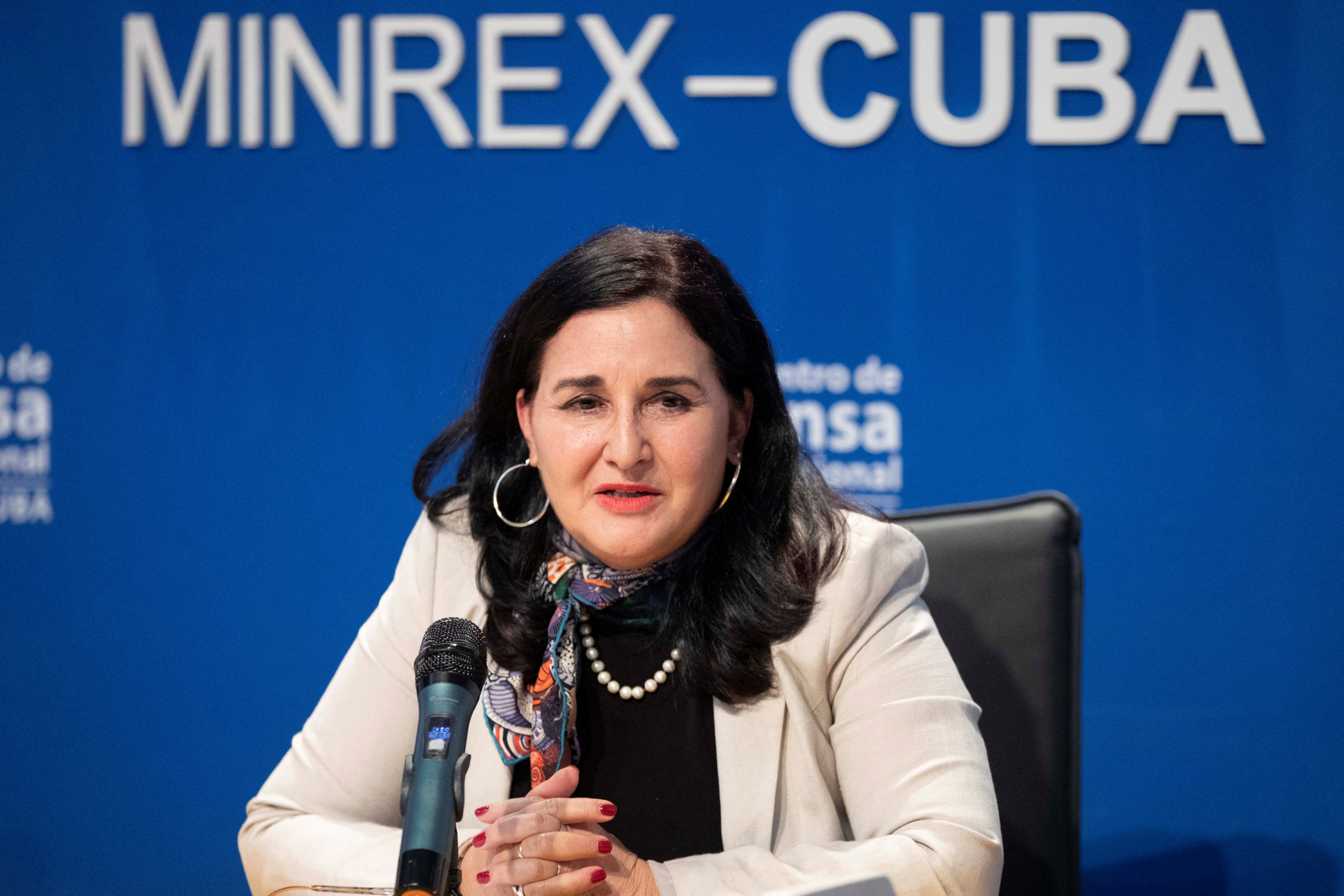
Sign up here.
Reporting by Nelson Acosta; additional reporting by Marc Frank; Editing by Josie Kao
Our Standards: The Thomson Reuters Trust Principles. New Tab , opens new tab

World Chevron
Somalia's government said it had suspended and detained several members of an elite, U.S.-trained commando unit for stealing rations donated by the United States, adding that it was taking over responsibility for provisioning the force.
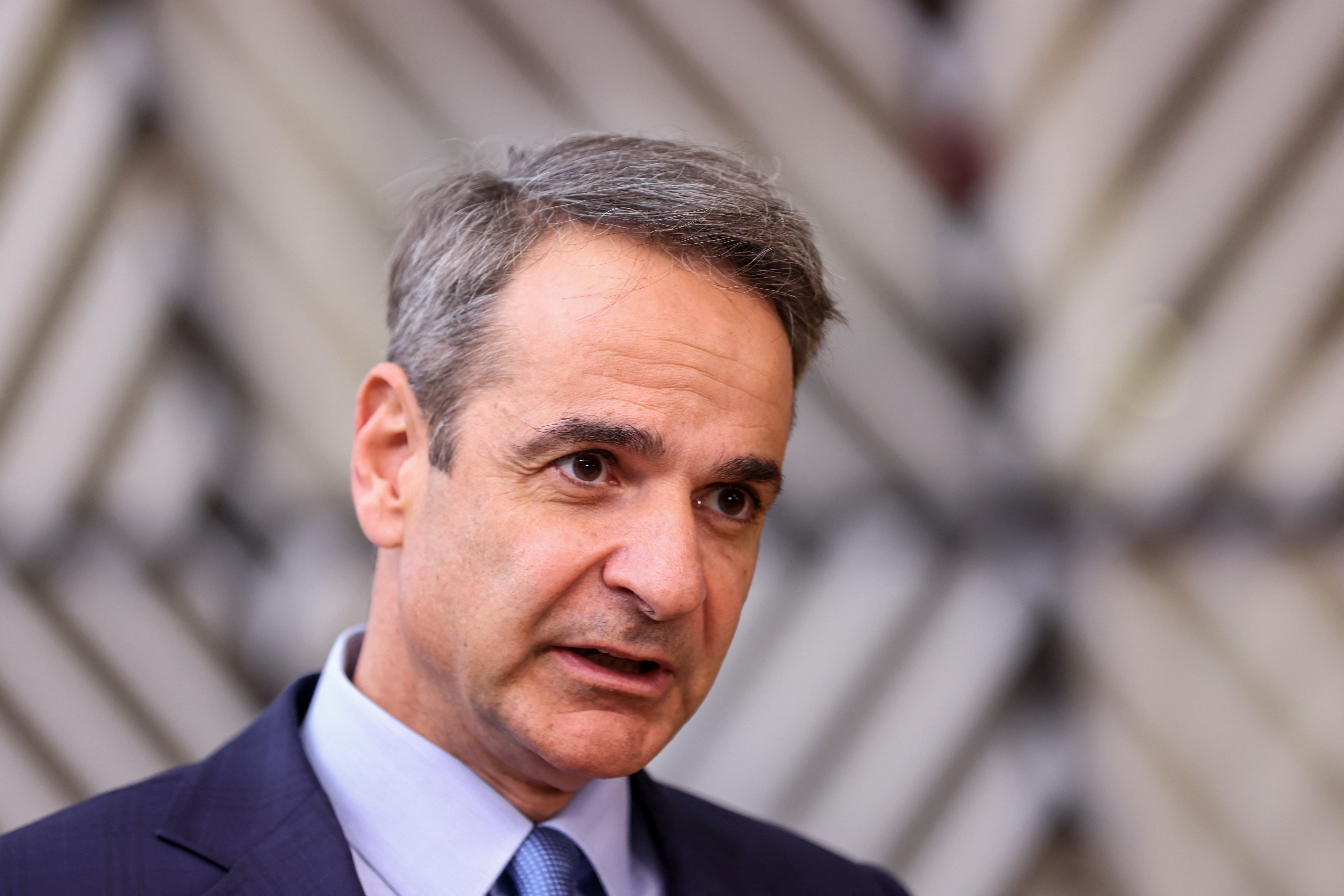
Spain will send a small number of Patriot missiles to Ukraine, El Pais newspaper reported on Friday, quoting unidentified sources.
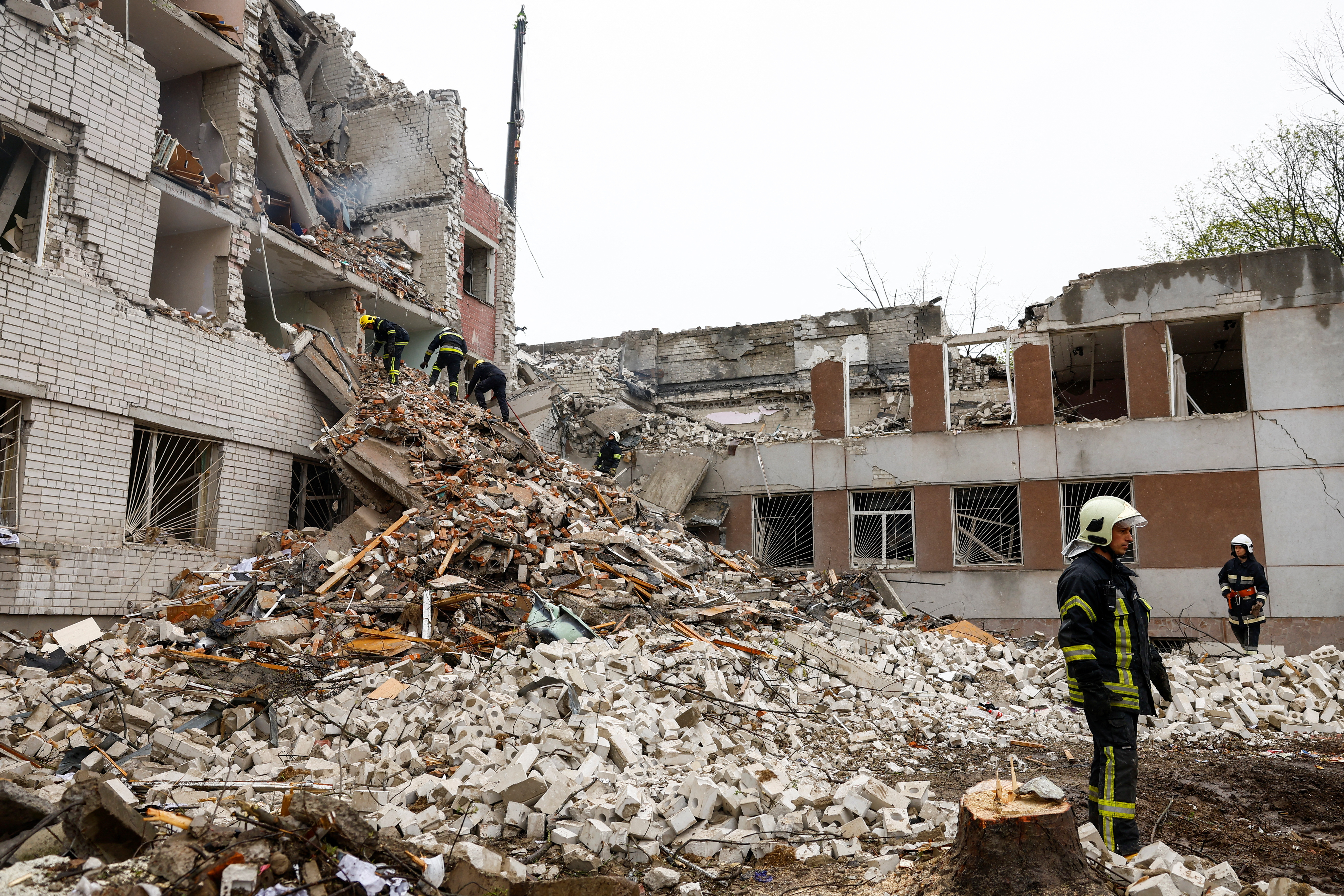
We’re sorry, this site is currently experiencing technical difficulties. Please try again in a few moments. Exception: request blocked

IMAGES
VIDEO
COMMENTS
For most European citizens, a valid passport is required during your stay in Cuba. Some countries, like Spain, require the passport to be valid for at least 6 months. It's also important to note that if you plan to travel to the United States after visiting Cuba, you'll need a visa. This is because the electronic system for travel authorization ...
To enter Cuba, your passport must have an 'expiry date' at least 6 months after the date you arrive and 3 months after your planned departure date. Check with your travel provider that your ...
For most travelers, even travelers from the United States, entry to Cuba is as simple as landing on the island and passing through immigration. However, it's important to be aware of a few important entry requirements to Cuba before planning your trip to Cuba - you'll need to prepare for them before arriving!. We travel to and from Cuba frequently and have helped thousands of travelers ...
Call us in Washington, D.C. at 1-888-407-4747 (toll-free in the United States and Canada) or 1-202-501-4444 (from all other countries) from 8:00 a.m. to 8:00 p.m., Eastern Standard Time, Monday through Friday (except U.S. federal holidays). See the State Department's travel website for the Worldwide Caution and Travel Advisories.
Citizens of some Caribbean, Asian and European countries, including Russia, Montenegro, Serbia and Singapore, can travel visa-free to Cuba for up to 90 days with a passport that doesn't expire for at least six months. Passport holders from all other countries must purchase what is known officially as a Cuba Tourist Card, although it's often ...
Reply to: EU citizen travelling to Cuba - Some info and tips. Your message. Read our community guidelines. Get notified by e-mail when a reply is posted. Preview. Cuba forums . Cuba forums . All forums . Get answers to your questions about Cuba . Ask a question Recent Conversations. Havana 12:01 am;
Citizens of these countries can stay in Cuba without a visa for up to 60 days: Grenada, St Vincent and the Grenadines. Citizens of these countries can stay in Cuba without a visa for up to 90 days: Benin, Bosnia and Herzegovina, Kenya (once in a calendar year), Malaysia, Montenegro, Namibia, North Macedonia, Russia (can be extended to 180 days ...
Visa requirements for European Union citizens are administrative entry restrictions by the authorities of other countries placed on citizens of the European Union. They differ among countries. ... Democratic Republic of the Congo, Côte d'Ivoire, Cuba (can be obtained in travel agencies or airlines), Djibouti, Equatorial Guinea, Eritrea, ...
Visit the COVID-19 crisis page on travel.state.gov for country-specific information related to COVID-19. Check with airlines, transportation providers, and destination countries for how COVID testing and vaccine requirements might impact travel. Assistance: U.S. Embassy Havana, Cuba 55 Calzada, La Habana, Cuba +(53) (7) 839-4100
Visitors to Cuba must obtain a visa before travel or a tourist card from one of the Cuban diplomatic missions, travel agencies or authorized airlines unless they come from one of the visa exempt countries. [1] All visitors, including those with Cuban nationality residing outside Cuba, must hold valid return tickets and proof of medical insurance.
2. Fill out your passenger information in advance. Cuba uses an online form called D'Viajeros to gather traveler information, including immigration and health data, in advance of travel. Fill out the form digitally up to 72 hours before your arrival in Cuba. 3.
Travel to Cuba for tourist activities remains prohibited by statute. However, the Department of Treasury's Office of Foreign Assets Control (OFAC) has issued general licenses for 12 categories of travel. ... All U.S.-Cuban dual citizens should note that the Government of Cuba treats U.S. citizens born in Cuba as Cuban citizens and may subject ...
Read all reviews. All UK and EU passport holders need to obtain a visa to travel to Cuba, and what they need is officially known as a 'Cuba Tourist Card', though often referred to as a 'Cuba Tourist Visa'. This is issued as a piece of paper with your name and other details on it. It is a physical document, so you cannot get it sent to ...
That meant that visitors to Cuba were no longer able to visit the USA using the ESTA Visa Waiver Scheme. It does NOT mean that you cannot visit the USA. It simply means that to visit the USA after a trip to Cuba you'll need to apply for a regular visa, at an embassy or consulate of the United States. The enforcement of this policy came in ...
By El Toque. HAVANA TIMES - The Cuban government will require, as of January 23, 2023, a digital customs declaration for travelers entering the country. The declaration is part of a more extensive digital form (which also contains immigration and health information) that will be mandatory for visitors, both Cubans and foreigners.st.
A valid passport is required for travel to Cuba, and Irish passports should have a minimum validity of 6 months. Passport cards cannot be used. Please note that travelling to Cuba will impact on travel and entry to the United States - please see 'US Travel' section below. The arrival form on the D'Viajeros traveller information portal ...
I am a dual EU/US citizen and my wife is US only. We spend part of the year in Portugal, and it would be our starting point. We're thinking of adding Cuba on to a family visit to Florida. A couple ways we can go about this: 1. Fly from EU to Cuba, Cuba to USA. 2. Fly from EU to USA, USA to Cuba in the middle of our USA trip, then back to USA.
In October 2022, the US Government started enforcing the restriction on people who have travelled to Cuba since 12th January 2021. These travellers are no longer eligible to apply for the ESTA Visa Waiver programme, and need to apply for a US visitor's visa (B1/B2) via their nearest US Embassy. According to the US Department of Homeland ...
Is travel to Cuba for tourist activities permitted? No. Consistent with the Trade Sanctions Reform and Export Enhancement Act of 2000 (TSRA), travel-related transactions involving Cuba are only permitted for the 12 categories of activities identified in the CACR. Travel-related transactions for other purposes remain prohibited.
Established in 1988, diplomatic relations between the European Union and Cuba are based on a political dialogue that promotes cooperation, respect for human rights and the modernisation of the Cuban economy, as well as the development of joint responses to global challenges. In an effort to update bilateral relations, limited between 1996 and ...
American Travel to Cuba. The short answer to the question "can Americans travel to Cuba" is YES, American citizens can travel to Cuba. Non-U.S. citizens are allowed to travel to Cuba via the United States as well. American citizens can fly from the United States directly to Cuba, travel independently (no need for a group trip or guided trip ...
The Cuba Information Manual ("The Definitive Guide to Legal and Illegal Travel to Cuba") says:. The embargo laws do not forbid U.S. citizens from traveling to Cuba. They do, however, forbid U.S. citizens from spending money there without the proper permits, which essentially amounts to the same thing—unless you plan on begging your way around the country (from Cubans who don't have much ...
The conclusion is that a Cuba Visa for EU citizens is easy to obtain. When you apply online, the application process is fast and efficient, and iVisa will do most of the work for you. The document you receive allows you to stay in Cuba for up to 30 days, but you can request an extension if you want. You are granted a single entry.
Top Cuban diplomat weighs in on immigration, Havana Syndrome and more 26:19. Washington — Cuba's government is willing to accept more deportation flights from the U.S. of Cuban migrants, who ...
Cuba on Monday said it would insist the U.S. ease sanctions and end special treatment of Cubans illegally entering its territory at high level migration talks slated to begin Tuesday in Washington.
The State Department advises U.S. citizens overseas to exercise increased caution because of increased tensions around the world and the potential for terrorist attacks, demonstrations, or violent actions against U.S. citizens and interests.